

Racial Justice Conversations: Becoming Agents of Change
- Home
- Who We Are
- Racial Justice Conversations: Becoming Agents of Change
The Antiracism Statement from Senior Leadership references the work of historian and author Dr. Ibram X. Kendi by stating “It is not enough to be ‘not racist.’” Please join us in a series of informative and thoughtful conversations about how, as individuals and a community, we can all push beyond the idea of being racist or not racist and instead reimagine and transform ourselves, our ideals, our policies, and this institution into one that is antiracist.
The purpose of these conversations is to empower everyone in the St. John’s community to become agents of change.
Click here to fill out the application form by Monday, December 7 if you are interested in joining the Racial Justice Conversations Committee for the Spring 2021 Semester.
(All members of the St. John's community are welcome including students and alumni.)
The committee is looking to schedule 2 conversations during the Spring 2021 semester.
Expected time commitment is 1-2 hours per week.
- Create a space where community members can learn about antiracism.
- Deepen attendee understanding of each conversation topic.
- Provide attendees with actionable steps they can incorporate in everyday life as they work to become agents of change.
- Build the confidence of attendees to engage in racial justice conversations.
- Each session will be 90-minutes in length.
- Sessions will include one opener/closer, one moderator and four to five discussants from the St. John’s community who will facilitate each conversation.
- The entire St. John’s University community is invited to attend (inclusive of students, faculty, employees, and alumni).
- Moderator and discussants will have audio and video. Attendees will be muted with no video.
- Attendee questions are encouraged. Questions should be submitted through the Q&A box.
- Audience participation via the chat is encouraged.
- Audience questions will be interwoven within the conversation as deemed appropriate by assigned tech support/personnel.
- Questions that pertain to other session topics will be held for those sessions. It is our hope that unanswered questions will be gathered and addressed in future conversations.
Every community owes its existence and vitality to generations from around the world who contributed their hopes, dreams, and energy to making the history that led to this moment. Some were brought here against their will, some were drawn to leave their distant homes in hope of a better life, and some have lived on this land for more generations than can be counted. Truth and acknowledgment are critical to building mutual respect and connection across all barriers of heritage and difference. We begin this effort to acknowledge what has been buried by honoring the truth. St. John's University occupies the ancestral lands of the Matinecock, Rockaway, Lenape and Canarsie Peoples. We pay respects to their elders past and present. Please take a moment to consider the many legacies of violence, displacement, migration, and settlement that bring us together here today. Please join us in giving voice to these truths at every opportunity.
Please check back for updates on future sessions.
Spring 2021 Sessions and Resources
The History, Legacy, and Impact of Anti-Asian Violence
Wednesday, April 21, 2021 | 2:45 p.m.
Session Description: Recent escalations in anti-Asian violence raise the question, “Why?” By examining the history and legacy of anti-Asian violence, we will explore the impact of discrimination, violence, and crime on Asian-American communities, their families and health outcomes, their sense of belonging and safety, and their opportunities and responsibilities. We will come together to discuss ways to find unity and to actively engage these challenges.
Please note: Prior to each conversation, attendees are asked to review recommended resources to ensure an informed and fruitful conversation.
- Resource: (video, 2 min) Fears that anti-Asian racism could outlast the pandemic. February 26, 2021.
- Resource: (video, 3 min) Good Morning America. Man who allegedly attacked Chinese woman on NY street arrested.
Please read at least 2 of the articles below.
- Resource: (article) The New York Times. Attacks on Asian-Americans in New York Stoke Fear, Anxiety and Anger. February 26, 2021.
- Resource: (article) The Washington Post. I grew up in the South as an Asian American. It was clear I wasn’t welcome. March 18, 2021.
- Resources: (article) WUSA. Hate crimes against Asian Americans, Black and Hispanic communities. Here's why they are similar. March 22, 2021.
- Resource: (article) Ho, Jennifer. White supremacy is the root of all race-related violence in the US. The Conversation. April 9, 2021.
- Resource: (article) Haas Voices. How the ‘model minority’ myth hurts Asian Americans.
- Resource: (article) USA Today. 'Invisibilized': Asian Americans lead in long-term unemployment amid COVID-19 pandemic and hate attacks. April 7, 2021.
- Resource: (article) Learning for Justice. How to respond to coronavirus racism. March 20, 2020.
- Description: As COVID-19 infections increase, so too does racism and xenophobia. Use our “Speak Up” strategies to let people know you’re not OK with racist or xenophobic comments about coronavirus or anything else.
- Resource: (article) Learning for Justice. Speak up at school.
- Description: Teaching tolerance recommends a four-step process for speaking up against bias: Interrupt, Question, Educate, Echo
A message from Keaton Wong
Director of Equal Opportunity and Compliance, and Title IX Coordinator
“We want to also remind everyone that any bias incidents, whether or not related to COVID-19, should be reported at www.stjohns.edu/reportbias. You can also call Equal Opportunity and Compliance at 718-990-1865 (press 4)”.

Empowerment cannot occur without education. We hope to empower and aid you in your journey by offering additional resources to supplement your learning which will add insight into each conversation topic.
Resource: (free online training) Hollaback! and Asian Americans Advancing Justice. Bystander intervention to stop anti-Asian/American harassment and xenophobia workshop.
- Description: Free online training opportunities offered weekly.
Resource: (video) PBS. Asian Americans.
- Episode 1, aired March 30, 2021.
- Episode 2, aired April 6, 2021.
- Description: PBS documentaries on Asian American History:
Resource: (video, 1:51:53) PBS. The Chinese Exclusion Act. American Experience. Aired May 29, 2018.
- Description: Examine the origin, history and impact of the 1882 law that made it illegal for Chinese workers to come to America and for Chinese nationals already here ever to become U.S. citizens. The first in a long line of acts targeting the Chinese for exclusion, it remained in force for more than 60 years.
Learn more about The Chinese Exclusion Act and the Center for Asian American Media.
Resource: (article, 20 pages) Zhang, Yan, Lening Zhang, and Francis Benton. A Criminology Study: Hate Crimes against Asian Americans. American Journal of Criminal Justice. January 7, 2021. Pages 1–21.
Resource: (video and media gallery) PBS. Asian Americans Collection.
- Description: Collection of 37 videos and 1 media gallery. Suggested for grades 4-12.
Asian Americans is a five-hour film series that delivers a bold, fresh perspective on a history that matters today, more than ever. As America becomes more diverse, and more divided, while facing unimaginable challenges, how do we move forward together? Told through intimate and personal lives, the series will cast a new lens on U.S. history and the ongoing role that Asian Americans have played in shaping the nation’s story.
We're pleased to present over thirty lesson plans based on the Asian American series. You'll find this collection to include the stories behind the Chinese Exclusion Act, the incarceration of Japanese Americans during World War II, Southeast Asian refugees after the Vietnam War, Filipino American Farmworkers, the fight for civil rights and much more.
Teachers may utilize these lesson plans which are drawn from the series to explore the ways that Asian Americans have shaped our nation's history.
Resource: (video) Smith, Llewellyn. Race: The Power of an Illusion: The House I Live In. 2003. California Newsreel.
- Notes: The beginning to 24:00 is recommended. 14:24 to 24:00 gives the story of two Asian Americans, Takao Ozawa and Bhagat Singh Thind, that are particularly important for the story of the racialized nature of American citizenship and why Asian Americans are so critical to understanding that history.
Highly recommend the entire documentary for a treatise on what "whiteness" means.
Resource: (videos) Pak, Susie. Who was St. John’s? A historical audit.
- Part 1: Introductions and Origins
- Part 2: Expansion and Personalization
- Part 3: Student Activism After Vatican II - Register for the lecture on April 19 during Common Hour (1:50-2:10 pm EST)
Resource: (article) Slate. A Racist Was Always Going to See Me as Asian. March 31, 2021.
Resource: (article) The Wall Street Journal. Violence Spurs Many Asian-Americans to Activism for First Time. April 7, 2021.
Resource: (article) Chen, Angus. 'It Just Stays With You': The Corrosive Health Effects Of Decades Of Anti-Asian Violence. April 9, 2021.
Resource: (prayer) A Prayer Service for Racial Healing in Our Land.
Resource: (prayer) Prophets of a Future Not Our Own.
Social Determinants and Disparities
- Asian-Americans and Pacific Islanders in COVID-19: Emerging Disparities Amid Discrimination.
- Potential Impact of COVID-19–Related Racial Discrimination on the Health of Asian Americans.
Mental Health
About the “Model Minority”
Opener:
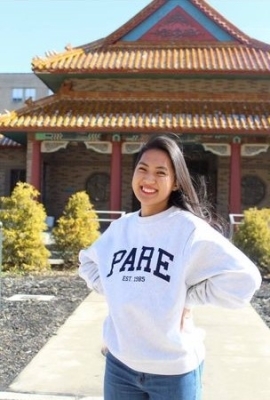
Blanche Palasi
College of Pharmacy and Health Sciences, Doctoral Student Candidate, Class of 2024
Philippine Americans Reaching Everyone, Vice President
Category: Student
Pronouns: she/her/hers
Blanche Palasi is a third-year student, a candidate for Doctor of Pharmacy at St. John’s University. A student leader, she serves as Vice President for Philippine Americans Reaching Everyone and organizes events educating club members about Philippine culture. She is also a member of Lambda Kappa Sigma, an international fraternity that promotes women in pharmacy.
Opening Poem:
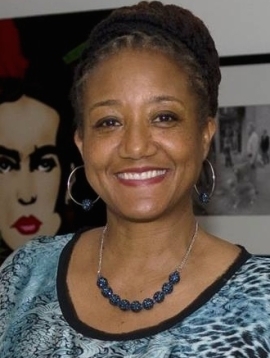
Sharon Marshall
Associate Professor
Coordinator, First-Year Writing
Institute for Core Studies
St. John’s College of Liberal Arts and Sciences
Category: Employee
Pronouns: she/her/hers
Sharon Marshall teaches First-Year Writing and coordinates the First Year Writing Program in the Institute for Core Studies. For nearly three decades she has devoted herself to teaching first year students and developing and sharing with others innovative and inclusive pedagogies that enhance students’ sense of belonging in the classroom and university. She is a founding member of the Academic Center for Equity and Inclusion and the chair of the Inclusive Campus Climate and Communication Sub-committee. Prof. Marshall serves on the Dean's Anti-Racism Task Force and The ICS Antiracist Action Committee. She practices Nichiren Buddhism and is a women’s leader in SGI-USA , a lay Buddhist organization.
Opening Prayer:
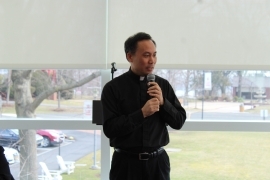
Fr. Tri Duong, C.M. '00C
St. John's University
Staten Island Campus
Category: Employee and Alumni
Fr. Tri is Vietnamese and one of ten children in his family. He came to the United States in September 1991 and became a part of the Vincentian community in 1998. In 2000, Fr. Tri graduated from St. John's University with his undergraduate degree in Philosophy. In 2004, Fr. Tri earned a Master's degree in Theology and a Master of Divinity in 2005, both at the Immaculate Conception Seminary in Huntington. He was ordained in 2005 and began working at St. John's that summer in Campus Ministry Department until summer 2013. In 2013, he moved to a Vincentian parish in Greensboro, NC, where there are over 20 spoken languages and mass in English, Vietnamese, Spanish, and four different Montagnard dialects. In the Summer of 2016, Fr. Tri returned to St. John's, where he serves as Campus Minister for Vincentian Service and Faith Formation at the Staten Island Campus.
Moderator:
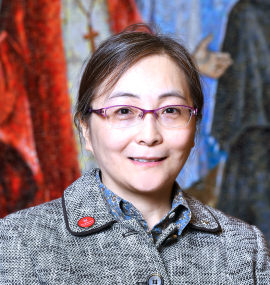
Jiyun Kim, M.D., Ph.D.
Associate Professor, Biology
St. John’s College of Liberal Arts and Sciences
Category: Employee
Pronouns: she/her/hers
Jiyun Kim has training in Medicine and in Research in Immunology and Neuroscience. At Saint John’s University, she is a dedicated teacher of Biology and engages in academic and career-advising to pre-healthcare career track undergraduate students. She engages in experimenting enhanced pedagogy and applying new educational technology platforms to promote diversity, equity and inclusion. Having lived in three different continents and four countries during her formative years, Dr. Kim has personal experience of being “ the only…” in personal and professional settings. She has always been keenly interested in issues of racial justice and social justice for the marginalized populations. Dr. Kim currently serves as a member of the Reporting and Assessment subcommittee for the ACEI, also a member of the Dean’s Anti-Racism Task Forces of St. John’s College, and on the Anti-Racism Task Forces for the Mission.
Panelists:

Christine Chim '11 PharmD, BCACP
Associate Professor, Clinical Health Professions
College of Pharmacy and Health Sciences
Category: Employee and Alumni
Pronouns: she/her/hers
Christine Chim is an Associate Professor at St. John’s University’s College of Pharmacy and Health Sciences. She currently provides patient care as a board-certified ambulatory care pharmacist within the Division of General Internal Medicine (DGIM) at Northwell Health, and a preceptor for pharmacy students on their ambulatory care rotation, in which they provide education to patients about their disease states and medications. Dr. Chim completed her PharmD at St. John’s University and pharmacy residency at Northeastern University/Harbor Health Services, Inc. in Boston, MA.
Her practice and research interests include pharmacist-run home visits, diabetes, anticoagulation, interprofessional education, caring for the underserved, social determinants of health and health disparities. She is a 2017-2020 Fellow of the Clinical Scholars national leadership program supported by the Robert Wood Johnson Foundation.
Dr. Chim believes that one of her purposes in work is to ensure equitable care for patients, and to educate and model for students how to treat patients holistically, including how to address their social determinants. She currently serves as a member of various committees focused on diversity, equity, and inclusion initiatives, including the University’s Equity and Inclusion Council, Faculty Personal and Professional Development Subcommittee of the Academic Center for Equity and Inclusion, the College of Pharmacy and Health Sciences’ Committee on Equity and Inclusion, and the Northwell Health DGIM Equity Taskforce.
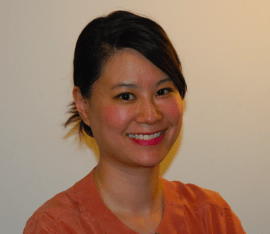
Susie J. Pak, Ph.D.
Associate Professor, History
St. John’s College of Liberal Arts and Sciences
Category: Employee
Pronouns: she/her/hers
Susie J. Pak is an Associate Professor in the Department of History at St. John’s University (New York). A graduate of Dartmouth College and Cornell University, she is the author of Gentlemen Bankers: The World of J.P. Morgan (Harvard University Press, 2013). Pak trained as an Americanist in Asian American history at Cornell under Professor Gary Y. Okihiro. At St. John's, she teaches U.S. American history, Asian American history, and historiography (the history of history). She has served as a Trustee of the Business History Conference, serves as co-chair of the Columbia University Economic History Seminar, and co-editor of the Global Enterprise series of Cambridge University Press. She is a member of the Editorial Advisory Boards of Business History Review, Financial History, and Connections, the Journal of the International Network of Social Network Analysis. Dr. Pak is the sesquicentennial lecturer for the three-part series, “Who is St. John’s?”
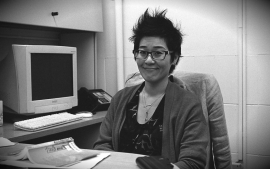
Elda Tsou, Ph.D.
Associate Professor, English
St. John’s College of Liberal Arts and Sciences
Category: Employee
Pronouns: she/her/hers
Elda Tsou is an Associate professor in the English department at St. John College. Her research areas are Asian American literature, literary form and Asian American and Ethnic Studies. Her first book proposed that Asian American literature be reconceptualized not as a literature “about” Asian American identity but as a historically and racially specific set of rhetorical tropes. Her second book project, now in progress, explores the racial affinity between the Asian American subject and whiteness.
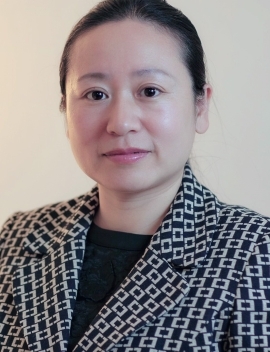
Yue Angela Zhuo, Ph.D.
Director and Associate Professor of Criminology and Justice Program, the Department of Sociology and Anthropology
St. John’s College of Liberal Arts and Sciences
Category: Employee
Pronouns: she/her/hers
Yue Angela Zhuo is the Director and Associate Professor of Criminology & Justice Program in the Department of Sociology and Anthropology at St. John’s University. She received her Ph.D. in sociology from the SUNY-Albany, M.A. in economics from Nankai University, and LL.B. in law and B.A. in English from Tianjin University. As an international criminologist and sociologist, Dr. Zhuo conducts research within the global arena specializing in crime and law, substance abuse, juvenile delinquency, and family dynamics. Her work has been published in numerous book chapters and prestigious peer-reviewed journals including British Journal of Criminology, Crime, Law & Social Change, Asian Journal of Criminology, American Journal of Community Psychology, Journal of Substance Abuse Treatment, Journal of Consulting and Clinical Psychology, Research on Aging, etc. Dr. Zhuo has served as the elected board member of the Association of Chinese Criminology and Criminal Justice (ACCCJ), the senior visiting research fellow at the University of Macau, and the non-resident affiliated scholar at U.S.-Asia Law Institute of New York University Law School.
"Antiracism: An Interfaith Response to Oppression" with Eboo Patel
Thursday, February 25, 2021 | 1:50 p.m.
Session Description:
Virtual Program with Eboo Patel, Founder and President of IFYC.
For more information contact: Dennis Gallagher, Director of Liturgy & Faith Formation—Campus Ministry, [email protected]
Brought to you by Campus Ministry's Interfaith Council and the Racial Justice Conversations Committee.
Moderator:
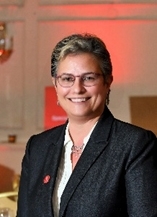
Nancy S. Kaplan, Ed.D.
Associate Provost
Academic Support Services
External Academic Partnerships, St. John's University
Nancy S. Kaplan, Ed.D., has spent the last 30 years of her career in higher education at St. John’s University. She is currently Associate Provost and an Adjunct Associate Professor in The Lesley H. and William L. Collins College of Professional Studies. Her academic credentials from St. John’s include a Doctor of Education, Master of Business Administration, and Bachelor of Science degree. Additionally, Dr. Kaplan completed the Management Development Program at Cornell University’s New York State School of Industrial and Labor Relations and the Management Development Studies Program at Harvard University. While a student at St. John’s, she was a four-year member of the women’s basketball team.
Additionally, she has served as a workshop facilitator for antibias and social justice organizations, including the Anti-Defamation League and the Institute for Sport and Social Justice. Dr. Kaplan has been especially effective in providing antibias education to members of law enforcement, higher education faculty and staff members, K-12 teachers and children, professional sporting organizations, and college athletes and coaches. Using her knowledge of higher education, her background in antibias education, and her experience as a member of a law enforcement family, Dr. Kaplan has developed a unique reputation for facilitating much-needed education and dialogue in a way that is impactful and thought provoking.
Dr. Kaplan also enjoys giving back to her community, as seen in her long-term service as a trustee on the school boards in two school districts, a member of the Merrick Kiwanis Club, and involvement in two local sports leagues. Dr. Kaplan resides in Long Island, NY. She is married to Lenny, the Athletics Director at the New Jersey Institute of Technology, and is the mother of two children, Michael and Joshua.
Presenter:
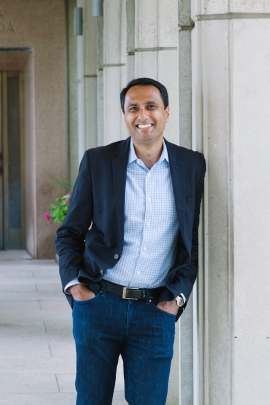
“The only way the nation feasts, is if diverse communities contribute” - Eboo Patel
Eboo founded Interfaith Youth Core on the idea that religion should be a bridge of cooperation rather than a barrier of division. He is inspired to build this bridge by his identity as an American Muslim navigating a religiously diverse social landscape.
For over 15 years he has worked with governments, social sector organizations, and college and university campuses to help make interfaith cooperation a social norm. Named by U.S. News & World Report as one of America’s Best Leaders of 2009, Eboo served on President Obama’s Inaugural Faith Council and is the author of Acts of Faith, Sacred Ground, Interfaith Leadership: A Primer, and Out of Many Faiths: Religious Diversity and the American Promise. He holds a doctorate in the sociology of religion from Oxford University, where he studied on a Rhodes scholarship. Patel and IFYC partnered with White House officials in developing President Obama’s Interfaith and Community Service Campus Challenge, which invited schools across the nation to make interfaith cooperation a campus priority and launched in 2011.
These days, Eboo spends most of his time on the road, doing what he loves: meeting students, educators, and community leaders to talk about the complex landscape of religious diversity and the power of interfaith cooperation in the 21st century.
In his off time, you’ll find Eboo in Chicago with his wife, Shehnaz, and their two sons. When he’s not teaching his kids about interfaith cooperation, there’s a good chance he’s rooting for Notre Dame and feeding a lifelong coffee addiction. Catch up with him on Twitter and Facebook, and keep exploring to learn more about Eboo and IFYC.
Click here to learn more about Eboo Patel.
The resources below were provided by the Interfaith Youth Core (IFYC).
Curriculum Resources
- We Are Each Other’s: We Are Each Other’s equips young people to engage in acts of interfaith cooperation, anti-racism, and service with their communities. Includes 3 curricular tracks: Getting Started, Interfaith Leadership 101, and Interfaith Cooperation and Civil Rights.
- BRIDGE: A growing series of modules and activities that help you lead trainings on exploring bias, interfaith engagement, and more.
Webinars and Articles
Resource 1 (Video, length: 01:06:48) Patton, Laurie L., Eboo Patel, and Calvin Taylor. "Interfaith Studies and Racial Equity" From the Teaching Interfaith Understanding Webinar. Interfaith America. Interfaith Youth Council (IFYC), June 29, 2020.
- Description: A conversation that explores how the intersection of interfaith engagement and racial equity can be explored in the classroom.
Resource 2 (Video, length: 01:01:54) "Creating Our Future: Ritual, Race, and Religion in America" Recorded Webinar. Interfaith America. Interfaith Youth Council (IFYC), December 8, 2020.
- Description: Join field leaders in an engaging conversation to explore the role of ritual as a meaning-making tool for both personal and collective expression, particularly in matters of race and religion.
Resource 3 (Article, ~17 pages) Minks, Hannah. Masterclass in Organizing with Dolores Huerta. Interfaith America. Interfaith Youth Council (IFYC), February 12, 2021.
(Video alternative, length: 59:14). A Talk with Dolores Huerta. Interfaith Youth Council (IFYC), February 10, 2021.
- Description: This webinar features Dolores Huerta, American labor leader and civil rights activist. Dolores has dedicated her life’s work to advocating for workers, immigrants, and marginalized communities in America, and co-founded the National Farmworkers Association. She speaks about the importance of anti-racism curriculum and the role of religious institutions in building a more racially just and equitable society.
Dr. Antonio Flores, the president and CEO of the Hispanic Association of Colleges and Universities (HACU), leads this conversation.
Resource 4 (Article, ~4 pages) Carter, Ph.D., Isaac M. "Critical Interfaith and the Struggle for Truth: Racism, Religion, and Black Liberty." Interfaith America. Interfaith Youth Council (IFYC), February 17, 2021.
Funding Opportunities for Racial Equity and Interfaith Cooperation Initiatives
- We Are Each Other’s Fund: Campaign Curriculum Awards: Alumni Starter Awards and Educator Curriculum Awards (Closes February 25. 2021)
- We Are Each Other’s Fund: Racial Equity and Interfaith Cooperation Awards: Faculty & Staff and Alumni (Closes February 25. 2021)
Fall 2020 Sessions and Resources
Session 1: The Socialization of Race and Racism
Wednesday, August 26 | 1:50 p.m.
Session Description: “The Socialization of Race and Racism” launches the series by discussing topics that include addressing the cycle of socialization, how we are socialized to think about race, and what experiences make us who we are.
Please note: Prior to each conversation, attendees are asked to review the top recommended resources to ensure an informed and fruitful conversation.
Resource 1 (article, ~7 pages) Harro, Bobbie. "The Cycle of Socialization.” In Readings for Diversity and Social Justice: An Anthology on Racism, Antisemitism, Sexism, Heterosexism, Ableism, and Classism, edited by Maurianne Adams, Warren J. Blumenfeld, Rosie Castañeda, Heather W. Hackman, Madeline L. Peters, and Ximena Züñiga, 45-52. Routledge, 2000.
- Description: “The Cycle of Socialization” plays a huge role in how we think about race. This article aids in understanding socialization’s impact on who we are.
Resource 2 (article, ~5 pages): Excerpts from Omi, Michael, and Howard Winant. Racial Formation in the United States (PDF). 3rd Edition. New York: Routledge, 2015.
Resource 3 (article, ~18 pages): Greene, Beverly. "What Difference Does a Difference Make?" (PDF). In Diversity in Human Interactions: The Tapestry of America, edited by John D. Robinson and Larry C. James, 3-20. Oxford University Press, 2003.
Empowerment cannot occur without education. We hope to empower and aid you in your journey by offering additional resources to supplement your learning which will add insight into each conversation topic.
Resource 1 (video, length: 49:05 or transcript available):Understanding Racial-Ethnic Identity Development
- Description: EmbraceRace presents this Talking Race & Kids episode, “Understanding Racial-Ethnic Identity Development,” which was held on May 23, 2017, as part of their ongoing monthly series on topics at the overlap of race and raising kids. Racial-Ethnic Identity Development is a huge topic. EmbraceRace collaborated with Dr. Sandra “Chap” Chapman, who leads the overview of the racial-ethnic identity models —including how and why they were developed, and how to use them to understand our own racial-ethnic identity journeys and to support the happy, healthy, and just development of the children in our lives. EmbraceRace cofounders, Melissa Giraud and Andrew Grant-Thomas, frame the discussion and facilitate Q&A.
Resource 2 (video, length 2:46): W. Kamau Bell Doesn't Want to Fit In
- Description: Comedian W. Kamau Bell struggled with his identity growing up. As a self-described “nerd,” he favored martial arts over basketball and rock over hip-hop. This struggle carried over into adulthood and his early efforts at standup comedy. At one point, he even considered giving up comedy entirely. It was at this crossroads that Mr. Bell stumbled upon a Rolling Stone article, which became the catalyst for him finding his own voice. Since then, Mr. Bell has gone on to headline shows across the country, host a CNN series, and document it all in his new book, The Awkward Thoughts of W. Kamau Bell.
Resource 3 (video, length 5:35): The Theory of Racial Formation”
- Description: This video explains racial formation theory and racial projects, as elaborated by Michael Omi and Howard Winant.
Resource 4 (video, length: 1:12:05): "Dark Girls, Episode 1." Dark Girls. Oprah Winfrey Network.
- Description: Dark Girls is a fascinating and controversial film that goes underneath the surface to explore the prejudices dark-skinned women face in the world. It explores the roots of classism, racism, and the lack of self-esteem within a segment of cultures.
Resource 5 (video, length 1:46): P&G (Procter & Gamble). The Look.
- Description: Created in 2019, The Look, uses historical references and contemporary stories to highlight the bias experienced by Black men in America. The film helps to build empathy, change perspectives, prompt personal introspection, and bring people together for conversation. Produced by Saturday Morning with Anthony Mandler and Malik Sayeed, the film is used as an educational tool at institutions across the country. A discussion guide and background on the inspiration for the film can be found at www.talkaboutbias.com.
Resource 6 (article, ~4 pages): Harper, Shaun R., and Charles H. F. Davis III. “Eight Actions to Reduce Racism in College Classrooms: When Professors are Part of the Problem.” American Association of University Professors (AAUP). Washington, DC: November–December, 2016.
Resource 7 (article, ~2 pages): Harper, Shaun R. “Colleges Should Stop Paying Money to Ignore Racial Problems”. Inside Higher Ed. December 10, 2015.
Resource 8 (article, ~2 pages): Harper, Shaun R. “Corporations say they support Black Lives Matter. Their employees doubt them.” The Washington Post, Perspective. June 16, 2020.
Resource 9 (video, length: 17:08): “James Baldwin Discusses Racism.” The Dick Cavett Show. 1969 May 16.
- Description: A prophetic interview with author James Baldwin on race decades ago that is still shockingly relevant about racial prejudice, civil rights activism, and policing.
Resource 10 (video, length: 12:57): “James Baldwin and Paul Weiss Debate Discrimination in America.” The Dick Cavett Show. 1969 May 16.
- Description: Author James Baldwin and Paul Weiss, Ph.D., philosopher and Sterling Professor of Philosophy at Yale University, debate the issue of racial discrimination in the US.
Resource 11 (video, length: 1:55:50): Whiteness: The Meaning of a Racial, Social and Legal Construct (Panel). Emory University. 2017 Nov 16.
- Description: There is a growing realization that whiteness is as much a social, racial, and political identity as being African, Latin, Asian, or Native American. In partnership with The Jimmy Carter Presidential Library and Museum, The James Weldon Johnson Institute for the Study of Race and Difference hosted a panel on the evolution of whiteness in American society. Our esteemed panel brings their interdisciplinary perspective to the panel to explain why race—including whiteness—still matter in America.
Resource 15: (video, length: 5:39) Golash-Boza, Tanya. “What is race? What is ethnicity? Is there a difference?” October 28, 2018.
- Description: This video explains the uses of each term, as well as the social impacts of those terms.
Resource 16: (article, ~2 pages) What is Racial and Ethnic Socialization (RES)? RESilience, American Psychological Association. March 2018.
- Description: This online resource offers an overview of what racial and ethnic socialization is, when it begins, its impact on children, and how it shows up in our society.
Opener:

Jasmyne Peck ’16CPS
Development Assistant
Monkeypaw Productions, and Director of Development, Black Film Allegiance
Category: Alumni
Pronouns: she/her/hers
Jasmyne Peck ’16CPS is the Director of Development at Black Film Allegiance (BFA), as well as a writer/director. As a storyteller, she is dedicated to the interrogation of what radicalism looks like through genre and the acknowledgement of joy.
Currently, Ms. Peck is employed at a development company in addition to her role at BFA. She holds an M.F.A. from the University of Southern California’s School of Cinematic Arts and an undergraduate degree from St. John’s University, where she majored in Television and Film and minored in Social Justice: Theory and Practice as an Ozanam Scholar.
Moderator:
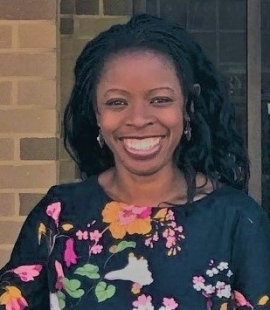
Carline Bennett
Director, Ozanam Scholars Program
Category: Employee and Alumni
Pronouns: she/her/hers
Since joining St. John’s University in 2013, Carline Bennett has served as the Director of the Ozanam Scholars Program within the Vincentian Institute for Social Action. In this capacity, Ms. Bennett leads students in the critical examination of systems that perpetuate poverty and encourages Scholars to take action to advance social justice globally through undergraduate research, global partnerships, and Vincentian service.
As a third culture kid (TCK)—a Sierra Leonean, born and raised in England, and later schooled in the United States—Ms. Bennett recognizes the importance of and challenges associated with navigating and embracing multiple identities.
Former roles include cofounder of the Telem Center for the African Child, Inc. and Vice President of Education at generationOn, the youth and education division of the world’s largest organization dedicated to volunteer service, the Points of Light Institute. She holds a master’s degree in International Educational Administration and Policy Analysis from Stanford University and has extensive experience in service-learning, positive youth development, curricula design, and education. Ms. Bennett also holds a master’s degree in Childhood and Special Education from St. John’s University.
Discussants:

Beverly Greene, Ph.D., ABPP
Professor of Psychology, St. John’s College of Liberal Arts and Sciences
Category: Employee
Pronouns: she/her/hers
Beverly Greene, Ph.D., ABPP is a Professor of Psychology at St. John’s University and a practicing clinical psychologist licensed in New York and New Jersey. A Fellow of the American Psychological Association, she is board certified in clinical psychology by the American Board of Professional Psychology, and is a Fellow of the American Academy of Clinical Psychology.
Dr. Greene is the author of more than 100 scholarly publications, of which 12 have received national awards for making significant and distinguished contributions to the psychological literature.
She is also the recipient of 40 national awards for distinguished contributions to scholarship, teaching and mentoring, leadership, service, and advocacy. She has made significant contribution to the development of a greater understanding of the intersections of race, gender, sexual orientation, and social marginalization in psychotherapy. She is known for her pioneering contributions to the development of multiple identity/intersectional paradigms in the delivery of psychological services.
Her groundbreaking theoretical formulations have forcefully advocated for deepening competencies in working toward the greater integration of psychological theory, research, practice, and social justice, and provide a public health framework for understanding and providing mental health services to many of society’s most marginalized members.
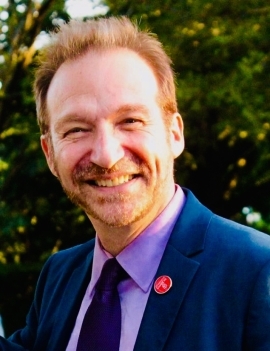
Robert Fanuzzi, Ph.D.
Associate Provost and Director of Civic Engagement, St. John’s Staten Island campus
Associate Professor of English and American Studies, St. John’s College of Liberal Arts and Sciences
Category: Employee
Pronouns: he/him/his
Dr. Fanuzzi is a scholar of abolition and race in the Americas. He is the author of Abolition’s Public Sphere, on the 19th-century US abolition movement, and many articles on histories and cycles of racism in the US and Caribbean. His current book projects include Abolition Then and Now: From the End of Slavery to the End of Everything and The Empire Left Behind: French Colonial Racial Science and Formations of American Studies.
As Associate Provost and Director of Civic Engagement on St. John’s Staten Island, NY, campus, Dr. Fanuzzi promotes publicly engaged scholarship and campus community partnerships, particularly as they impact racial equity and inclusion. He is the recipient of a Humanities New York grant for “Sandy Ground at St. John’s: Faces of the Underground Railroad,” an educational outreach program based on Staten Island’s black history and African immigration, and an American Studies Association Community Partnership Grant supporting the Pan-African Library of the Canvas Institute of Art, Culture, and Civic Engagement. Dr. Fanuzzi is also the author of Recovering 9/11, on the World Trade Center attacks, and has written and lectured widely on the public purpose of higher education.
A winner of St. John’s University’s St. Vincent de Paul Teacher-Scholar Award, Dr. Fanuzzi teaches undergraduate courses in American literature and culture and African-American studies, as well as graduate courses on black radicalism and Critical University Studies. He has been awarded the Vincentian Institute for Social ActionAcademic Service-LearningFaculty Awars for courses on food justice and urban sustainability, and serves on the Executive Committee of the Academic Center for Equity and Inclusion.
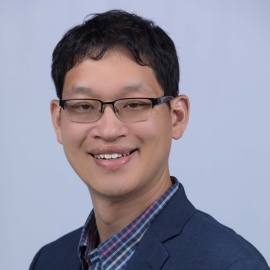
Edwin Tjoe '10Ed.D.
Assistant Dean of Data Management and eLearning
Categories: Employee and Alumni
Pronouns: he/him/his
Dr. Tjoe’s research and teaching focus on the preparation of forward-thinking leaders in college and university settings. His dedication to the promotion of education is seen through his academic service in programs enhancing community partnerships. He served on the Technological Strategic Planning Committee for the Diocese of Brooklyn, NY, from 2012-16. That committee determined how to inform and equip our school administrators, teaching staff and students to take best advantage of technology and information as they continue to evolve.
Dr. Tjoe has been an Adjunct Associate Professor at St. John's University since 2006 and has lectured at Stony Brook University since 2005. Over the past 15 years, he has taught more than 16,321 students. Dr. Tjoe was also a member of the SUNY FACT Committee that developed the 2014 CIT that focused on connection strategies to move higher education forward using assessment strategies and learning analytics as a key way of understanding the effectiveness of learning and changing learning environments. He has also worked with more than 30 doctoral students as a committee member for their dissertations.
Dr. Tjoe is an inspired leader, working to ensure there is understanding and respect between all people by recognizing diversity as a central component in achieving desired student/teacher/administrative learning outcomes. His devotion is evident by his support of the University at large. Dr. Tjoe is part of the Respond and Partner to Engage Your Community Team (RESPECT), which provides direct support to any individual impacted by prejudice-based aggression. In addition, he was part of St. John’s University’s first practitioner cohort that helped to advance St. John’s commitment to diversity, equity, and inclusion by facilitating professional development discussions and developing and supporting inclusivity practices in individual departments/units.
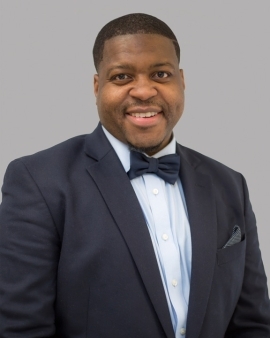
Sharod L. Tomlinson
Director of Student Development
Category: Employee and Doctoral Student
Sharod Tomlinson is one of America’s emerging personal achievement and performance experts. Whether keynote speaking, facilitating mastermind groups and workshops, or coaching clients, audience members say that Mr. Tomlinson’s high energy and refreshing and original presentations exceed their expectations. Clients credit Mr. Tomlinson with improving their quality of life as he coaches them to break through the barriers that hold them back from achieving their goals and realizing their truest potential.
Mr. Tomlinson has a B.S in Public Administration from John Jay College; an M.S. in Nonprofit Management from The New School, Milano School of Public Engagement; and is a Doctoral Candidate in The School of Education at St. John’s University. He currently serves as the Director of the R.I.S.E. Network at St. John’s University, a scholar’s empowerment network that provides Black and Latinx first-year students with skill-based development, support, and opportunities to enhance their overall academic career.
Mr. Tomlinson was featured in Campus Life Trends magazine for his work and commitment to achieve a healthy work–life balance. He has also completed the DeVos Urban Leadership Initiative, a nationally renowned, intense, 15-month leadership development program for urban youth workers.
Mr. Tomlinson was the recipient of the inaugural New York Nonprofit Media Cause Award in 2016, which honors individuals, agencies, and philanthropists who make a major impact on the most pressing human services issues in New York’s nonprofit sector. He was recognized for his commitment to youth development.
Session 2: Construct of Whiteness
Wednesday, September 9 | 1:50 p.m.
Session Description: This session discusses the construct of Whiteness. The conversation covers topics inclusive of the creation and history of whiteness, white racial identity development, white supremacy, white privilege, white fragility, white shame, and white guilt.
Please note: Prior to each conversation, attendees are asked to review the top recommended resources to ensure an informed and fruitful conversation.
Resource 1: (video, length: 22:05) DiAngelo, Robin. “Deconstructing White Privilege with Dr. Robin DiAngelo,” General Commission on Religion and Race of the UMC. February 21, 2017.
- Description: Robin DiAngelo, Ph.D., is the author of What Does it Mean to Be White? Developing White Racial Literacy and has been an antiracist educator who has heard justifications of racism by white men and women in her workshops for more than two decades. This justification, which she calls “white fragility,” is a state in which even a minimum amount of racial stress becomes intolerable, triggering a range of defensive moves. These moves include outward display of emotions such as anger, fear, and guilt, and behaviors such as argumentation, silence, and leaving the stress-inducing situation.
Resource 2: (video, length: 6:19) SeeProgress. Dr. Ibram X. Kendi: Race and America. May 17, 2018.
- Description: Ibram X. Kendi, Ph.D., historian and author, speaks at the Center for American Progress’s 2018 Ideas Conference. Dr. Kendi is the author of Stamped from the Beginning: The Definitive History of Racist Ideas in America and How to be an Antiracist.
Resource 3: (article, ~3 pages) Ariel, Cortney. “For Our White Friends Desiring to be Allies.” Sojourners, Commentary/Living Faith/Racial Justice. August 16, 2017.
Resource 4: (article, ~10 pages) Massingale, Bryan. “The assumptions of white privilege and what we can do about it.” National Catholic Reporter, Commentary. June 1, 2020.
- Description: A Fordham University professor and Catholic priest reflects on the incident in Central Park this summer between Chris Cooper, a birdwatcher, and Amy Cooper (no relation), walking her dog.
Empowerment cannot occur without education. We hope to empower and aid you in your journey by offering additional resources to supplement your learning which will add insight into each conversation topic.
Resource 5: (article, ~11 pages or audio, length: 32:34) Khilnani, Sunil. “Isabel Wilkerson’s World-Historical Theory of Race and Caste.” The New Yorker, Books. August 17, 2020.
- Description: Article about the new, much-acclaimed book, Caste: The Origins of Our Discontents, just released by Isabel Wilkerson. By comparing white supremacy in the US to the caste system in India, Caste at once illuminates and collapses a complex history.
Resource 6: (article, ~4 pages) Morris, Wesley. “The Reconciliation Must Be Televised.” The New York Times, Critic’s Notebook. July 30, 2020.
- Description: Truth and reconciliation in the US: what is the next step as America confronts its racism? A broadcast spectacle, our critic writes, that could look like court, a telethon, therapy, an Oprah show—and more.
Resource 7: (article, ~2 pages) AAIHS Editors. “A Call to Action to Catholic University Communities.” African American Intellectual History Society (AAIHS), Black Perspectives. June 24, 2020.
Resource 8: (article, ~5 pages or audio, 8:00) Shapiro, Ari. “'The Color Of Law' Details How U.S. Housing Policies Created Segregation.” All Things Considered. NPR, Author Interviews. May 17, 2017.
- Description: NPR’s Ari Shapiro speaks with author Richard Rothstein about his new book, The Color of Law: A Forgotten History of How Our Government Segregated America, which details how federal housing policies in the 1940s and 50s mandated segregation and undermined the ability of black families to own homes and build wealth.
Resource 9: (video, length: 5:50) Equal Justice Initiative. Slavery to Mass Incarceration. July 7, 2015.
- Description: The myth of racial difference created to sustain American slavery persists today. Slavery did not end in 1865, it evolved. The Equal Justice Initiative works to end mass incarceration, excessive punishment, and racial inequality. Visit their website to learn more.
Resource 10: (video, length: 1:17:18) Helms, Dr. Janet. The 2014 Merle Jordan Conference - Dr. Janet Helms – Session 2: “Identity and Racial Trauma”. Boston University. June 20, 2014.
- Description: Janet Helms, Ph.D., discusses identity and racial trauma during the 2014 Merle Jorden Conference, themed “Terror, Trauma, and the Sacred: Psychological, Clinical, and Religious Perspectives.”
Resource 11: (book) Wilkerson, Isabel. Caste: The Origins of Our Discontents. Random House, 2020.
Resource 12: (article, ~2 pages) Williams, Caroline Randall. “You Want a Confederate Monument? My Body is a Confederate Monument.” New York Times, Opinion. June 26, 2020.
- Description: This is a powerful and emotional essay about carrying racial history in one’s body.
Resource 13: (video, length: 12:28) Gray, Dave. “Liminal Thinking.” Ultimatevideo. September 30, 2018.
Resource 14: (audio series, length ~1 hour per episode) Joffe-Walt, Chana. “Nice White Parents,” Serial, New York Times. Published July 23, 2020.
- Description: A five-part series about building a better school system, and what gets in the way.
Resource 15: (article, ~9 pages) Scharfenberg, David. “Here come the white people—a new antiracist movement takes flight.Boston Globe, Ideas. June 12, 2020.
Openers:

Patrick J. Kohn
College of Pharmacy and Health Sciences, Class of 2022
Student Government, Inc. (SGI) President - Queens Campus
Category: Student
Patrick J. Kohn is a fifth-year pharmacy student from Bergen County, NJ, and is the current SGI President. Patrick was attracted to St. John’s because of its strong Pharm.D. program, and especially due to its diversity, which contrasts sharply with the area in which he was raised and desired to leave.
His past experience includes serving as Chair of the Organizations Committee within Student Government, Inc.; as a leader in many organizations across campus; and as an Orientation Leader his sophomore year. For the past four years, he has also served as a student representative for the University’s Strategic Priorities Review Team. Patrick is excited to continue the work of building collaborative relationships in a variety of areas on campus to promote antiracism within the University and beyond.

Julia Betancourt
The Lesley H. and William L. Collins College of Professional Studies, Class of 2022
Student Government, Inc. (SGI) Vice President - Queens Campus
Category: Student
Julia Betancourt is a junior in the journalism program at St. John’s. Born in Queens, NY, before her parents moved east to Holbrook, Julia experienced a significant drop in diversity and inclusivity within her new home community, aspiring her to move back to Queens for college in search of what she lost.
She arrived at St. John’s and joined Food for Thought and the SGI Equity Committee, groups that allowed her to practice her strong values of self-expression and social justice. After serving as the Equity Committee Chair in 2019-20, she ran for Vice President to tackle greater institutional change. Julia believes it is the responsibility of every student government to create equitable opportunities for students to express their voices and have them hold weight in the decisions made to better our community.
Moderator:
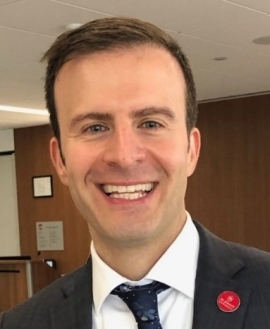
Matthew Pucciarelli, Ph.D.
Associate Provost for Global Programs
Category: Employee
Matthew Pucciarelli joined St. John’s in 2007 and leads the Office of Global Programs. In this capacity, he oversees the University’s sites abroad and the Office of International Education, which houses study abroad, intensive English, and international visiting student programs. In addition, he works with colleagues throughout St. John’s to envision and administer comprehensive internationalization efforts, and with universities worldwide to create sustainable new partnerships.
He has presented on the University’s work within media outlets such as the New York Post and International Educator, and at domestic and international conferences, including NAFSA, AIEA, and the Institute of International Education’s Generation Study Abroad meeting. Prior to working at St. John’s, he helped manage admissions and student services for New York University's study abroad programs and served as a high school English teacher and department chair at Colegio Los Nogales in Bogotá, Colombia.
He received a B.A. in English and American literature from New York University, an Ed.M. from Harvard University, and a Ph.D. in English from St. John's University.
Dr. Pucciarelli also serves as the proud advisor of Spectrum, the University's LGBTQ+ student group. He lives with his husband in New York City.
Discussants:
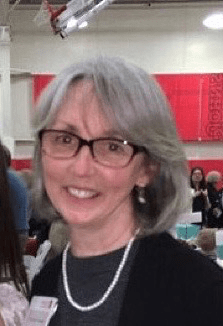
Joanne M. Carroll, Ph.D.
Associate Professor
Department of Pharmaceutical Sciences
College of Pharmacy and Health Sciences
Category: Employee
Pronouns: she/her/hers
Dr. Carroll has been a faculty member at St. John’s for 28 years. Her research focused for many years on the factors involved in the development of neurons. More recently her scholarship has shifted to a focus on public health and she is actively involved in the St. John’s University Inside-Out Prison Exchange Program. This is part of a national organization which brings college students into prisons to share classes with incarcerated students.
At St. John’s, she has been active with several efforts on campus to promote social justice issues, including the Academic Center for Equity and Inclusion, Equity and Inclusion Council, Vincentian Center for Church and Society, Women in Science Society, and Train the Trainer program. She is also an active member of the New York Reentry Education Network, which advocates for educational opportunity in prisons and jails and transformation of the carceral system.
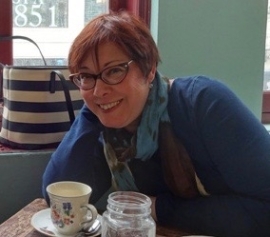
Caroline Fuchs, '04MLS
Associate Dean and Associate Professor
St. John’s University Libraries
Learning Design Librarian
Category: Employee and Alumni
Pronouns: she/her/hers
Caroline Fuchs is Associate Dean and Learning Design Librarian at St. John’s University. She holds an M.L.S., an M.A. in English and an M.A. in history, and is a Senior Fellow at the Vincentian Center for Church and Society. She is an adjunct in the Division of Library and Information Science, a fully online master’s degree program. She teaches social justice issues and visual literacy skills through graphic novels. Active in the national library community, she has held key leadership and executive positions in the American Library Association (ALA), the Association of College and Research Libraries (ACRL), and the Reference and User Services Association (RUSA).
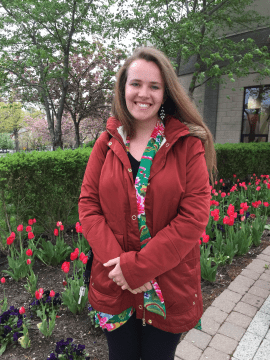
Victoria O’Keefe ’13CPS, ’15G, ’19G
Residence Campus Minister for Social Justice, St. John’s University
Category: Employee
Pronouns: she/her/hers
Victoria O’Keefe is in her fifth year of ministry at St. John’s. She provides a pastoral presence in residence, as well as oversees program justice events offered by Campus Ministry in University Mission.
Ms. O’Keefe has encountered, served, prayed, and reflected alongside students in more than 10 US cities and many countries. She also serves as Co-Chair for the Catholic Relief Services (CRS) Global Campus Committee at St. John’s University, working with a team of faculty and CRS ambassadors to bring justice events to the campus at large. CRS advocates for people’s basic needs, coupled with capacity building in an ever-changing world. She was fortunate enough to be invited to observe the work of CRS country programs in Uganda in 2018.
Ms. O’Keefe also works on a cross-campus committee, St. John’s for Fair Trade, which worked to make the University a fair trade-designated campus with Fair Trade Campaigns, and continues to advocate for ethical spending practices within the institution. She is a first-generation college student who received her undergraduate degree magna cum laude at St. John’s as an Ozanam Scholar and member of the President’s Society. She has since been awarded two master’s degrees from St. John’s University: the first in Global Development and Social Justice on the Rome, Italy campus, and most recently a master of arts degree in Theology.
Outside the University, Ms. O’Keefe serves on the Vincentian Family Task Force on Youth and the Charism out of the Vincentian Family Office in Philadelphia, PA, and also serves on the Catholic Social Ministry Gathering Young Leaders Committee for the United States Conference of Catholic Bishops.
Having traveled to more than 40 countries, Ms. O’Keefe is interested in the common threads of humanity across the globe and believes cultural competency can lead to peacemaking. She also purchases fair trade and ethically sourced goods as often as possible, knowing that economic decisions positively impact women and children the most. For joyful moments, she likes cooking, gardening, visiting the beach, going to Holy Hour, and spending time with family.
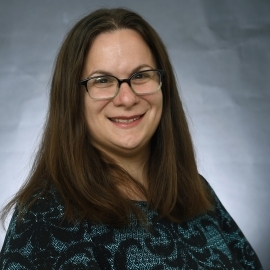
Linda Romano
Director of Digital Communications
Category: Employee and Doctoral Student
Pronouns: she/her/hers
Linda Romano has 20 years of experience in nonprofit marketing management, with a specific focus in higher education. She has an undergraduate degree from Dartmouth College, an M.A. in psychology from Adelphi University, and an M.A. in higher education policy/politics from Teachers College. She is currently pursuing a doctoral degree at The School of Education at St. John’s; her research explores how universities future-proof themselves through transformational leadership and innovative capital planning. Ms. Romano volunteers with the New York City Anti-Violence Project, the 15th St. Quaker Friends Shelter, and the Dartmouth Alumni Association, and also serves on the boards of several nonprofits in the greater New York area.
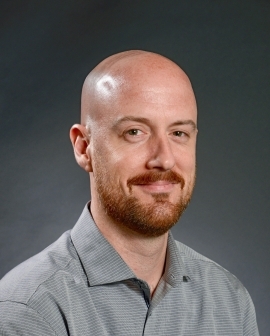
David Rosenthal, Ph.D.
Professor
Department of Mathematics and Computer Science
St. John’s College of Liberal Arts and Sciences
Category: Faculty
Pronouns: he/him/his
David Rosenthal, Ph.D., is a Professor in the Department of Mathematics and Computer Science. He received his Ph.D. in mathematics from Binghamton University (SUNY) in 2002 and was a postdoctoral fellow at McMaster University in Ontario, Canada, for two years before joining the faculty at St. John’s in 2004.
Dr. Rosenthal has numerous research publications in algebraic and geometric topology and is a coauthor of the undergraduate textbook, A Readable Introduction to Real Mathematics. For the past eight years, his research has been supported by grants from the Simons Foundation. In 2010, he was awarded a J. William Fulbright Scholars Grant to work with the Topology Group at the University of Muenster in Germany, and has been a frequent research guest at The Mathematics Institute at the University of Bonn in Germany, including research leaves in 2012 and 2020. He is also a dedicated teacher and received a St. John’s University Outstanding Faculty Achievement Award in 2019.
Dr. Rosenthal is committed to antiracist work; he is a member of the Inclusive Campus Climate and Communication Subcommittee of the Academic Center for Equity and Inclusion at St. John’s.
Session 3: Construct of Racialized Trauma
Wednesday, September 23 | 1:50 p.m.
Session Description: In this country, we have all breathed in the smog of bias and racism. Racialized Trauma describes race-based, traumatic stress as a result of a person’s experience with racism and discrimination. As we continue to explore the impact of race and racism on individuals, we will also look at its impact on communities. This session looks at how the ideas, practices, and policies underpin policing, health care, education, finances and other systems produce racialized trauma.
Please note: Prior to each conversation, attendees are asked to review the top recommended resources to ensure an informed and fruitful conversation.
Resource 1: (article, ~3 pages) Racial Trauma. Mental Health America. 2020.
Resource 2: (article, ~4 pages) Anderson, Riana Elyse, Farzana T. Saleem, and James P. Huguley. Choosing to see the racial stress that afflicts our Black students. Phi Delta Kappan. October 28, 2019.
- Description: The evidence suggests that the real damage occurs when we choose not to talk to our students explicitly about race and racism. With the right training and greater racial awareness, teachers can help students cope with the stress of racism and discrimination.
Resource 3: (article, ~3 pages) Finley, Todd. A Look at Implicit Bias and Microaggressions. March 25, 2019.
- Description: A primer on the impact of implicit biases in schools and how they can be expressed by students and faculty.
Resource 4: (video, length: 12:02) Minhaj, Hasan. We Cannot Stay Silent About George Floyd | Patriot Act Digital Exclusive | Netflix.Patriot Act. June 3, 2020.
- Description: Hasan Minhaj gives a call to action to the Asian community to step up in the fight for racial justice in America. He brings an incisive and nuanced perspective to global news, politics, and culture in his weekly Netflix comedy series.
Resource 5: (guidebook) Racial Trauma Guide: Racial Trauma During the COVID-19 Pandemic. Department of Psychology, Franklin College of Arts and Sciences, University of Georgia.
Resource 6: (video, length: 6:33) Democracy Now! Angelo Davis: Abolishing police is not just about dismantling. It’s also about building up. June 12, 2020.
Empowerment cannot occur without education. We hope to empower and aid you in your journey by offering additional resources to supplement your learning which will add insight into each conversation topic.
VIDEOS
Resource 7: (video, length: 9:27) Acho, Emmanuel. Uncomfortable Conversations with a Black Man. June 3, 2020.
- Description: Emmanuel Acho sits down to have an “uncomfortable conversation” with white America, in order to educate and inform on racism, system racism, social injustice, rioting, and the hurt African Americans are feeling today.
Resource 8: (video, length: 14:37) Breton, Leonard. #MoreThanAnAthlete. From Black Trauma Comes Black Leaders [Part 3 of 3]. June 7, 2020.
- Description: Video clip on aspects of education and “psycho-socialization” in the community and workplace. This series speaks to the emergence of Black leaders from the ranks of the community as a necessity during times of extreme crisis, the courage to step up, and a call for leadership from multiple avenues.
Resource 9: (video, length: 15:59) Breton, Leonard. Black Trauma [full] 30 May 2020.
Resource 10: (video, length: 55:00) Diversity, Equity and Inclusion in Open Educational Resource (OER). Rebus Community and Open Textbook Network. September 29, 2017.
- Description: Speakers Maha Bali (The American University in Cairo), Alan Harnum (OCAD), and Susan Doner (Camosun College) discuss Diversity, Equity, and Inclusion in Open Educational Resource (OER).
Resource 11: (video, length: 10:53) Democracy Now! Traumatized by 3 Years at Rikers Prison without Charged as a Teen, Kalief Browder Commits Suicide. June 8, 2015.
ARTICLES
Resource 12: (article, ~6 pages) Jernigan, Maryam M., Carlton E. Green, Leyla Pérez-Gualdrón, Marcia Liu, Kevin T. Henze, Cynthia Chen, Kisha N. Bazelais, Anmol Satiani, Ethan H. Mereish, Janet E. Helms. #racialtraumaisreal. Alumni Advisory Group (AAG), Institution for the Study and Promotion of Race and Culture (ISPRC). 2015.
- Description: Race is a long-standing and often controversial topic in the United States. This article offer guidance for how to identify, cope, and manage racial trauma. It includes an overview on creating a Racism Recovery Plan (RRP), which is a step-by-step guide that people of Color can tailor and then implement when coping with racial trauma. The guide helps people of Color identify stressful racism events in their lives, related symptoms they experience after such events, and coping strategies they can use to care for themselves during these events.
Ideally, the RRP should be developed prior to encounters with particularly stressful racial trauma. It is based on the Substance Abuse and Mental Health Services Administration supported work of Mary Ellen Copeland (see Copeland, 2002). The AAG hopes that a RRP can be created individually or in groups and used as a tool to ground oneself in the midst of racial trauma experiences.
Resource 13: (article, ~16 pages) Brondolo, Elizabeth, Irene V. Blair, and Amandeep Kaur. Biopsychosocial Mechanisms Linking Discrimination to Health: A Focus on Social Cognition, Chapter 12. August 31, 2017.
- Description: This chapter presents a theoretical framework that highlights the role of social cognition in mediating the effects of discrimination on health. This framework suggests that through alterations in schemas and appraisal processes, long-term discrimination increases the experienced frequency, intensity, and duration of threat exposure and concomitant distress.
At the same time, the ability to recover from threat exposure may be impaired by the effects of discrimination on cognitive control processes that are necessary for modulating stress responses. Together, these processes may influence the ability to initiate and sustain health-promoting behavior, avoid health-impairing behavior, attenuate stress reactivity, and facilitate stress recovery. Through effects on these processes, persistent exposure to discrimination may potentiate sustained dysregulation of psychophysiological systems responsible for maintaining health.
Resource 14: (article, ~9 pages) Liu, William Ming, Rossina Zamora Liu, Yunkyoung Loh Garrison, Ji Youn Cindy Kim, Laurence Chang, Yu C. S. Ho, and Chi W. Yeung. “Racial Trauma, Microaggressions, and Becoming Racially Innocuous: The Role of Acculturation and White Supremacist Ideology.” American Psychological Association. Vol. 74, No. 1, 143-155. 2019.
- Description: Acculturation theories often describe how individuals in the United States adopt and incorporate dominant cultural values, beliefs, and behaviors such as individualism and self-reliance. Theorists tend to perceive dominant cultural values as “accessible to everyone,” even though some dominant cultural values, such as preserving White racial status, are reserved for White people.
In this article, the authors posit that White supremacist ideology is suffused within dominant cultural values, connecting the array of cultural values into a coherent whole and bearing with it an explicit status for White people and people of color. Consequently, the authors frame acculturation as a continuing process wherein some people of color learn explicitly via racism, microaggressions, and racial trauma about their racial positionality; White racial space; and how they are supposed to accommodate White people’s needs, status, and emotions.
The authors suggest that acculturation may mean that the person of color learns to avoid racial discourse to minimize eliciting White fragility and distress. Moreover, acculturation allows the person of color to live in proximity to White people because the person of color has become unthreatening and racially innocuous. The authors provide recommendations for research and clinical practice focused on understanding the connections between ideology, racism, microaggressions and ways to create psychological healing.
Resource 15: (article, ~8 pages) Chavez-Duenas, Nayeli Y., Jessica G. Perez-Chavez, Hector Y. Adames, and Silvia P. Salas. “Healing Ethno-Racial Trauma in Latinx Immigrant Communities: Cultivating Hope, Resistance, and Action.” American Psychological Association. Vol. 74, No. 1, 49-62. 2019.
- Description: Latinx immigrants living in the United States often experience the negative effects of systemic oppression, which may lead to psychological distress, including ethno-racial trauma. We define ethno-racial trauma as the individual and/or collective psychological distress and fear of danger that results from experiencing or witnessing discrimination, threats of harm, violence, and intimidation directed at ethno-racial minority groups. This form of trauma stems from a legacy of oppressive laws, policies, and practices.
Using an intersectionality framework, this article discusses the complex ways in which interlocking systems of oppression (e.g., racism, ethnocentrism, nativism, sexism) and anti-immigrant policies impact Latinxs individuals, families, and communities. The article also presents a framework to stimulate healing from ethno-racial trauma, titled HEART (Healing Ethno And Racial Trauma).
Grounded in the principles of Liberation Psychology and trauma-informed care, the framework is composed of four phases. Each phase is accompanied by a goal to assist clinicians in helping individuals, families, and communities to achieve growth, wellness, and healing. The main objective of each phase is for Latinx immigrants to find relief, gain awareness, and cope with systemic oppression while encouraging resistance and protection from the external forces that cause ethno-racial trauma.
Resource 16: (article, ~5 page) Tatum, Beverly Daniel. The Complexity of Identity: “Who Am I?” 2020. In Adams, M., Blumenfeld, W. J., Hackman, H. W., Zuniga, X., Peters, M. L. (Eds.), Readings for diversity and social justice: An anthology on racism, sexism, anti-semitism, heterosexism, classism and ableism. 9-14. New York: Routledge.
Resource 17: (article, ~9 pages) Web Content Accessibility Guidelines (WCAG) Compliance Accessibility Checklist. The A11Y Project. 2020.
Resource 18: (article, ~1 page and video, length: 5:55) Dressner, Julie and Edwin Martinez. “The Scars of Stop-and-Frisk.” The New York Times. Opinion. June 12, 2012.
- Description: This article discusses the impact of the New York City Police Department's Stop, Question and Frisk in New York City. A short documentary film focuses on Tyquan Brehon, a young man in Brooklyn who was stopped more than 60 times before age 18.
Resource 19: (article, ~6 pages) Kushner, Rachel. Is Prison Necessary? Ruth Wilson Gilmore Might Change Your Mind. The New York Times Magazine. Feature. April 17, 2019.
- Description: Ruth Wilson Gilmore, activist and scholar, helps transform how people think about criminal justice by advocating for prison abolition.
BOOKS
Resource 20: (book) Baldwin, James. The Fire Next Time. Vintage International, New York. 1991.
Resource 21: (book) Menakem, Resmaa. My Grandmother's Hands: Racialized Trauma and the Pathway to Mending Our Hearts and Bodies.
Opener:
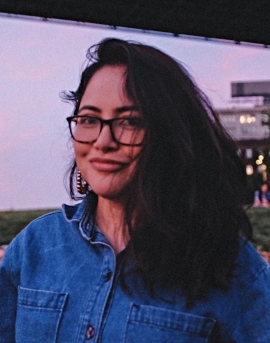
Haley Chang
Associate Producer, Us Kids
Category: Alumni
Pronouns: she/her/hers
Haley Chang works within the documentary film space and is an advocate for indigenous rights, especially that of Native Hawaiians and Pacific Islanders. She is currently an associate producer on the film Us Kids, which chronicles 18 pivotal months in the development of the March For Our Lives movement through a deeply personal lens.
Us Kids premiered at the 2020 Sundance Film Festival and has just launched its own national drive-in screenings tour. Ms. Chang hopes to continue her path in producing films that shift our narrative on important issues.
Moderator:
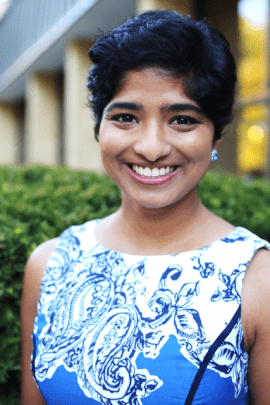
Elsen Jacob ’11Pharm.D.
Assistant Professor, Department of Clinical Health Professions
St. John’s University
Category: Faculty and Alumni
Pronouns: she/her/hers
Elsen Jacob is an Assistant Professor at St. John’s University’s College of Pharmacy and Health Sciences. She has a clinical practice site at The Mount Sinai Hospital, where she also serves as the Inpatient Pharmacy faculty for the Mount Sinai Family Medicine Residency and Pharmacy Residency programs.
Dr. Jacob completed her Pharm.D. from St. John’s University and her Pharmacy Residency from Brigham and Women’s Hospital in Boston, MA. She is currently pursuing a master’s degree in the epidemiology program at Columbia University.
Her practice and research interests include health equity, drugs of abuse and misuse, transitions of care, geriatrics, anticoagulation, patient safety, and interprofessional education. She is a founding member of the Coalition for the Advancement of Pharmacy Practice, which seeks to improve health care access, enhance patient care, and reduce health care costs through collaboration with pharmacists.
Dr. Jacob is passionate about diversity, equity, and inclusion, and seeks to educate students on racism and its broad-ranging negative impact including on individuals, communities, patient care, and health-care systems.
Discussants:
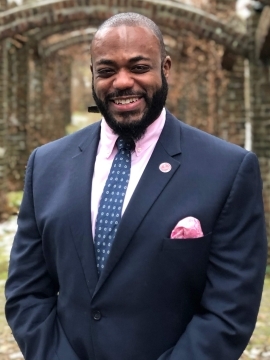
Leonard S. Breton
Associate Director of Student Development and R.I.S.E. Mentoring
Category: Employee
Pronouns: he/him/his
Leonard S. Breton attended Pace University in Pleasantville, NY, earning a bachelor’s degree in Literature and Communications with a minor in Secondary Education. He later earned his master’s degree in education at Monmouth University.
Prior to arriving at St. John’s, Mr. Breton served as a high school English teacher, as well as a football and basketball coach. His passion for administration and desire to make greater change in the field of education, particularly for Black students, led him back to the collegiate level and to Queens, NY, where he was born and raised.
He currently serves as the Associate Director of Student Development and R.I.S.E. Mentoring. His commitment to education and the empowerment of Black people guide him through his academic work; he is pursuing his doctorate in education with aspirations of being a more prominent higher education administrator.
Outside of daily work, he serves the campus community by facilitating workshops such as Interactive Peer Theater and Bystander Intervention Leadership Training with SOAR, the office of Sexual violence, Outreach, Awareness, and Response. He is also a member of the University’s Equity and Inclusion Council; RESPECT, the University’s bias response and restorative justice team; and the newly formed Athletics Council for Community, Culture and Social Justice.
Outside of St. John’s, he is the President of the Long Island Council of Student Personnel Administrators and a member of Black Edfluencers United, where he fulfills his commitment to all levels of education.
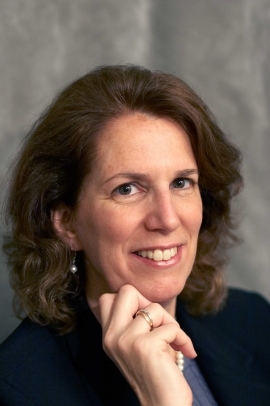
Elizabeth Brondolo, Ph.D.
Professor, Department of Psychology, St. John’s University
Category:Faculty
Elizabeth Brondolo, Ph.D., is a Professor at St. John’s University and Director of the Collaborative Health Integration Research Program (CHIRP). Dr. Brondolo and her students conduct programmatic, mechanistic research aimed at understanding the effects of stress on health. Their projects include studies of the effects of the stress associated with work, racism, poverty, and end-of-life.
The research conducted by the CHIRP program employs a variety of methodologies, including ambulatory monitoring and ecological momentary assessment, to bring the “lab to the field.” Dr. Brondolo’s research has been funded by the National Institute of Mental Health; National Heart, Lung, and Blood Institute (NHLBI); National Institute for Occupational Safety and Health; American Heart Association; and other organizations.
She has been a permanent member of several study sections, including Mechanisms of Emotions, Stress, and Health, and the clinical trials review for NHLBI. She is currently serving on the Steering Committee on Health Disparities for the American Psychological Association and is Chair of the Working Group on Stress and Health Disparities.
Among other awards, she has received the Patricia R. Barchas Award in Sociophysiology from the American Psychosomatic Society. Dr. Brondolo has published widely (more than 80 papers) in behavioral medicine and health.
One of her primary commitments is developing the pipeline of scholars from diverse backgrounds who will generate the knowledge and methods to reduce racial disparities in health. Dr. Brondolo is also a working clinician, specializing in the treatment of post-traumatic stress and bipolar disorder, and the author of Break the Bipolar Cycle: A Day-by-Day Guide to Living with Bipolar Disorder (McGraw Hill).
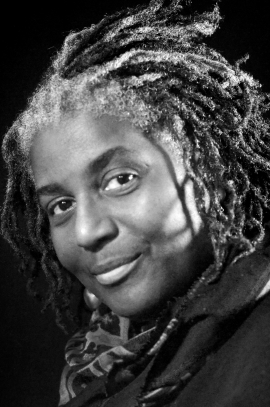
Natalie P. Byfield, Ph.D.
Professor, Department of Sociology and Anthropology
St. John’s University
Category: Faculty
Pronouns: she/her/hers
Natalie P. Byfield, Ph.D., is a cultural sociologist whose scholarship is interdisciplinary. Her research is broadly concerned with hegemony, specifically the construction and reproduction of inequalities in the modern western world and the social justice response to them.
Dr. Byfield’s work centers the subjugation of Blackness in examinations of racial regimes under capitalism that oppress people, foster all forms of inequalities, and generate resistance that counters this subjugation. She examines racial regimes in institutions related to policing, journalism, the social sciences, and higher education.
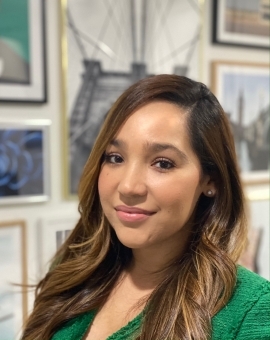
Erica Flores '12GEd
ENL/Bilingual Resource Specialist and Adjunct Professor
The School of Education, St. John’s University
Category: Faculty and Doctoral Student
Pronouns: she/her/hers
Erica Flores, a graduate of St. John’s School of Education, is currently a Ph.D. student in the department of Curriculum and Instruction. Her research interests include multicultural education, social justice, and equity for English Language Learners. She is an English as a New Language and Bilingual Resource Specialist working for New York State Education Department’s Long Island Regional Bilingual Education Resource Network. Her various teaching experiences include co-teaching in a Special Education setting, stand-alone English as a New Language, and Integrated English. Throughout her tenure as a K-12 teacher, Erica taught at the middle school level in both the New York City Department of Education and in the Long Island Region. She also has experience with preschool and high school students, but has transitioned to higher education as an adjunct professor in the TESOL department at the College of Mount Saint Vincent. She continues to share her expertise on, and advocate for, Multilingual Learners with both preservice teachers and those within the education field through her participation in regional and statewide trainings, workshops, and conferences.
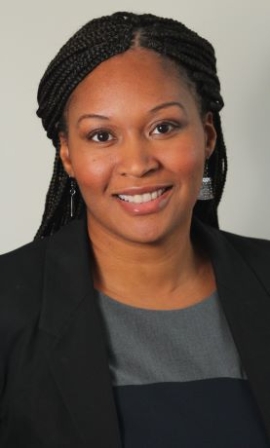
Ceceilia Parnther, Ph.D.
Assistant Professor
Department of Administrative and Instructional Leadership
The School of Education, St. John’s University
Category: Faculty
Pronouns: she/her/hers
Dr. Ceceilia Parnther is an Assistant Professor in the Department of Administrative and Instructional Leadership at St. John’s University. In her work, Dr. Parnther develops and implements qualitative research designs to explore postsecondary student success policies and outcomes. Her research agenda centers culture and equity and includes mentorship and student success, academic integrity education, and knowledge acquisition/dissemination in higher education. Dr. Parnther’s career path as a scholar-practitioner includes roles in academic and student affairs. She has served in leadership and teaching positions in higher education administration for 15 years. Among others, Dr. Parnther’s most recent scholarship is in Higher Education Research and Development, and in the Journal of College Student Retention: Research, Theory, and Practice.
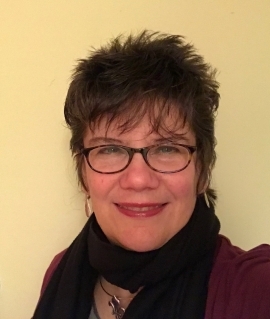
Kathryn Shaughnessy ’06MLS
Associate Professor and Open Education Librarian
Category: Faculty and Employee
Pronouns: she/her/hers
Professor Kathryn Shaughnessy’s work focuses on the ethical dimensions of Information and Communication Technologies (ICT) access and ICT literacy in education/library environments. She is an advocate for an Open Ecology of Information, which includes breaking down technological, economic, legal, socio-cultural, and information-literacy barriers that prevent unfettered access to reliable information.
Her current professional activities include raising awareness of open education and inclusive pedagogy practices, promoting open access scholarship, and facilitating the adoption/adaption/creation of open education resources. As co-Principal Investigator of a National Archives/National Historical Publications and Records Commission grant-funded project, Prof. Shaughnessy worked with New York City public school teachers to develop open curricula that helps student draw connections between personal history, New York City history, and push/pull factors of global history.
Prof. Shaughnessy also serves as an expert for the Holy See Mission to the United Nations, covering agenda items dealing with Information and Communication Technologies, development, migration, women, and education. Her service to professional library organizations include serving on the regional chapter of the Executive Board of the Association of College & Research Libraries, Greater New York Metropolitan Area Chapter (ACRL/NY, 2009-present), and on the Executive Board of the Catholic Library Association, formerly as Member-at-Large (2015-19) and currently as the Vice-President, President-Elect (2019-21).
Session 4: Impact of Power, Privilege, and Oppression
Wednesday, October 7 | 1:50 p.m.
Session Description: This session delves into how social power, privilege, and oppression impacts individuals and communities.
Please note: Prior to each conversation, attendees are asked to review the top recommended resources to ensure an informed and fruitful conversation.
Resource 1: (article, ~3 pages) Gay, Roxane. “Peculiar Benefits." The Rumpus. May 16, 2012.
- Description: Writer and professor Roxane Gay discusses privilege and how the meaning of the word has become diluted and confused in popular discourse. Gay shares her own experiences with understanding privilege and explains why people become defensive around the topic. She urges against using privilege as an accusation and warns of the uselessness of “The Game of Privilege” or the “Oppression Olympics.” As Gay says, “To have privilege in one or more areas does not mean you are wholly privileged. To acknowledge privilege is not a denial of the ways you are marginalized, the ways you have suffered.”
Resource 2: (article, ~11 pages) Fr. Bryan Massingale. “The assumptions of white privilege and what we can do about it.” National Catholic Reporter. June 1, 2020.
- Description: Clear presentation of what is involved in white privilege and clear strategies for addressing it, including (but not limited to) how Catholics can combat white privilege.
(video alternative, 25:04) America – The Jesuit Review. Fr. Bryan Massingale: How the church can combat racism and white privilege | Behind the Story. June 5, 2020.
- Description: Racism Father Bryan Massingale, author of “Racial Justice and the Catholic Church” and Professor of Theology at Fordham University, joins America's National Correspondent Michael O'Loughlin for a conversation on racism, white privilege and what the church can do to address these issues moving forward.
Resource 3: (video, 15:42) Saeed, Fahad.The importance of using inclusive language. TEDxCopenhagen. November 2019.
- Description: Diversity trainer and activist Fahad Saeed, addresses the persistent myth that inclusive language and acronyms create more barriers than they tear down. Sharing his own experiences as a gay Muslim man born to immigrant parents, he explains how redefining the constructs around personal identity can have positive repercussions in marginalized communities and beyond.
Empowerment cannot occur without education. We hope to empower and aid you in your journey by offering additional resources to supplement your learning which will add insight into each conversation topic.
Resource 4: (article, ~10 pages) Collins, Cory. “What Is White Privilege, Really?” Teaching Tolerance. Issue 60, Fall 2018.
Resource 5: (article, ~25 pages) Elmoudden, Sanae. “Can you see me now? Thirty years of Intersectional Silence in America.”
- Description: The current discourses about race and diversity (both online and offline) are transformative. This article is based on autoethnography methodology to showcase a liminal space of intersectionality. Drawing on Crenshaw’s (Crenshaw, 1989) concept of “Intersectionality,” the author shows the commitment that drove her to write this essay. The author provides a vignette to analyze the results, which she calls intersectional identity. Implications of this autoethnography suggest the necessity for our scholarship on intersectionality to incorporate racial fluidity narratives for people who exist at the intersections. On the same line of Chávez and Griffin (2012), the author aims to not only expand on the conversation between communication and intersectionality studies, but also draw Islam into the discussion (Ahmad, 2017).
Resource 6: (article, ~16 pages) Elmoudden, Sanae. “Loneliness Essentialism and Mental Illness Stigmatization.” Chapter 6 in Emotions and Loneliness in a Networked Society. Edited by Fox, B. p. 115-134. 2019.
- Description: When loneliness is attached to mental illness, much of the discussion revolves around the most popular discourse of acceptable therapy. Instead, this article addresses the loneliness that comes as a result of major mental illness such as schizophrenia. The article explores Patricia Hill Collins and Sirma Bilge’s (Intersectionality, Polity Press, 2016) writings on intersectionality. They pay homage to the heterogeneous, disciplinary, and historical meanings of the concept.
“When it comes to social injustices,” they write, similar to Kimberle Crenshaw (The University of Chicago Legal Forum: 139–167, 1989), that analysis should avoid focusing on a single axis, be it race, gender, etc. Their view on intersectionality is undertaken because they highlight the cultural, disciplinary, structural, and interpersonal as axes of oppression. The contribution of this chapter therefore is to highlight the unjust discourses at the intersection of mental illness, communication, and stigma to add a voice to intersectionality and communication scholarship on mental illness. The hope of this work is to shift our vocabulary from brain blindness to brain mindfulness.
Resource 7: (article, ~21 pages) Emdin, Christopher. “Affiliation and alienation: hip‐hop, rap, and urban science education.”Journal of Curriculum Studies, Vol. 42, No. 1. Pages 1-25. 2010.
- Description: The critiques of rap artists and other participants in hip-hop culture provide data for teachers and researchers to investigate the attitudes of US urban youth toward schooling. This study explores the complex relationships between hip-hop and science education by examining how rap lyrics project beliefs about schooling, the relevance of existing curriculum, and the intellectual capability of urban youth. These lyrics also provide a synopsis of this population’s alienation from schooling and from science education in particular. By examining student discourses in two US high schools, this study shows how cogenerative dialogues and other classroom procedures derived from hip-hop culture may be used to modify teaching and learning in science and to ameliorate urban students’ alienation from schools.
Resource 8: (article, ~14 pages) Nelson, Sara D. and Lori Norton-Meier. “Singing in Science: Writing and Recording Student Lyrics to Express Learning.”Journal for Learning through the Arts. Vol. 5, No. 1. 2009.
- Description: This article explores the use of lyric writing in elementary science. It details an exploratory project in which elementary students and a professional musician collaborated to write and record lyrics at the conclusion of an inquiry-based science unit. What they found was that lyric writing, when used as a summary reflection activity in science, offers students a unique opportunity to uncover and refine learning.
The collaboration among students, classroom teachers, professional musician, and sound technician greatly contributed to the creation of a unique and engaging opportunity for students to express their learning through the arts in science. Further controlled studies are recommended to determine the degree of impact on learning and long-term retention of science and music concepts.
Opener and Closer:
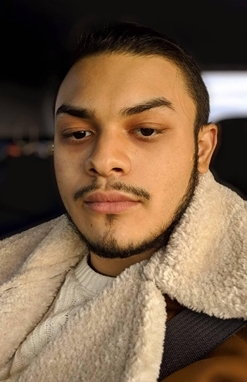
Amir Singh
The Lesley H. and William L. Collins College of Professional Studies, Class of 2021
Spectrum Copresident
Category: Student
Pronouns: he/him/his
Amir Singh is a fourth-year Computer Science student with a concentration in Cyber Security. He was born in the Bronx, NY, and is one of two Copresidents of Spectrum. Being raised in the Bronx, he grew up around many different cultures—and that is something he wanted to continue to experience in college, which led to him to choosing St. John’s.
Amir has been actively involved with Spectrum since his first year at St. John’s. He has held multiple roles, such as faith advisor, secretary, and now copresident, while also working closely with Campus Ministry. Along with being a leader for the SEARCH Retreat, he has collaborated on a faith-based retreat for LGBTQ+ individuals on campus with Jimmy Walters, Ed.D., Director of Residence Ministry and the Catholic Scholars Program, and Adjunct Professor, The School of Education and Institute for Core Studies.
He is also a SafeZone facilitator, which allows him the opportunity to educate willing individuals on deepening their understanding and unlearning stigmas of the LGBTQ+ community. Amir wants to use all of these experiences to radically change the foundations of the school for future generations.
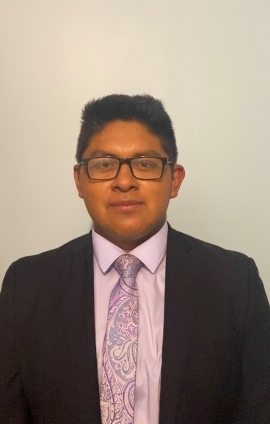
Roger Guevara
The Lesley H. and William L. Collins College of Professional Studies, Class of 2022
Student Government, Inc. (SGI) President, Staten Island Campus
Category: Student
Pronouns: he/him/his
Roger Guevara is a Communications Arts major in his junior year. During his time at St. John’s, he has held multiple positions on the Staten Island, NY, campus. He is a Career Peer in University Career Services, an Orientation Leader for the Office of Student Life, and a Diversity Peer Educator for the Office of Multicultural Affairs.
Last year, Roger was the sophomore senator for Student Government, Inc (SGI). His journey at St. John’s has also been one of serving and following the Vincentian mission. He went on the Niagara Plunge and to Give Kids the World Village, which were life-changing experiences.
Roger has also been on two Journeys for Justice. The first one was to El Paso, TX, to learn about the issues at the border, and the second one was to Alabama, where he learned in-depth about the civil rights movement. Both journeys made him aware of current social justice issues and helped him view the world in a different way.
Moderator:
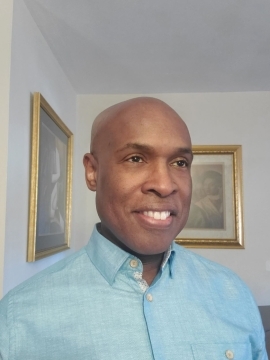
Nigel W. Gretton
Director of Performing Arts and Adjunct Professor of Music, St. John’s University
Category: Employee and Faculty
Pronouns: he/him/his
Nigel W. Gretton is a pianist, organist, choir director, music educator, and entrepreneur. He has provided event management, recording consultation, and performing arts services for clients all over the United States and cooperative educational services to schools throughout Long Island and New York City.
Mr. Gretton is Director of Performing Arts and a music faculty member at St. John’s University, where he also serves as Artistic Director and Conductor of the award-winning St. John’s University Voices of Victory gospel choir. For the past 32 years, he has given concerts with Voices of Victory throughout the eastern United States, Europe, and West Africa. He also serves as Minister of Music at the Congregational Church of South Hempstead (United Church of Christ) and First Baptist Church of Great Neck, NY.
Mr. Gretton’s social justice work includes civil rights lobbying in his community, the northeast region, and nationally with multiple community-based organizations and the National Association for the Advancement of Colored People (NAACP).
Discussants:
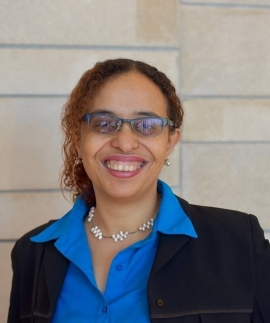
Sanea Elmoudden, Ph.D.
Assistant Chair and Associate Professor
Rhetoric, Communication and Theatre
St. John’s College of Liberal Arts and Sciences, St. John’s University
Category: Faculty
Pronouns: she/her/hers
Dr. Sanae Elmoudden is an Assistant Chair and Associate Professor in the department of Rhetoric, Communication and Theater at St. John’s University, New York. She received her M.A. in telecommunication and Ph.D. in communication from the University of Colorado, Boulder. During the lapse time between her master’s and her Ph.D. degrees, she worked as telecommunication analyst in different global cities. Her interests are in the conjuncture of globalization, technologies, and communication. She conducted a Fulbright research in Morocco that investigated the offshoring of call centers and its impact on Moroccan identities. Her publications highlight intersectionality, the discursive crossings of Muslim women in the United States, and most recently, an emphasis on brain diversity and the stigma associated with mental illness.
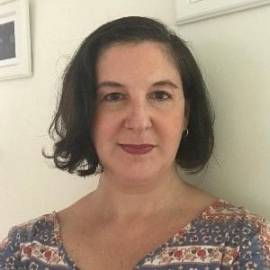
Anne M. Galvin, Ph.D.
Associate Professor, Department of Sociology and Anthropology, and Anthropology Program Coordinator
Category: faculty and employee
Pronouns: she/her/hers
Dr. Anne M. Galvin is Anthropology Program Coordinator and Associate Professor in the Department of Sociology and Anthropology at St. John’s University. She received her Ph.D. in anthropology from the Graduate Faculty of The New School for Social Research.
Dr. Galvin is a cultural anthropologist who has conducted ethnographic studies in Jamaica, West Indies, since 2001. She is the author of the book Sounds of the Citizens: Dancehall and Community in Jamaica published by Vanderbilt University Press and was the recipient of a Wenner-Gren Foundation research grant for a project examining the political ecology of the Black River as a natural resource in the agricultural parish of St. Elizabeth, Jamaica.
She is also currently working on an international collaboration with researchers from Dalhousie University, Nova Scotia, Canada, and Benemérita Universidad Autonoma de Puebla, Mexico, focused on the multisited ethnography of seasonal agricultural workers who move from their home communities in Jamaica and Mexico for temporary contract labor positions on farms in Nova Scotia, Canada. Her interests are globalization in the postcolonial Caribbean, with emphasis on inequality and governance, livelihood, popular culture, political ecology, and the environment.
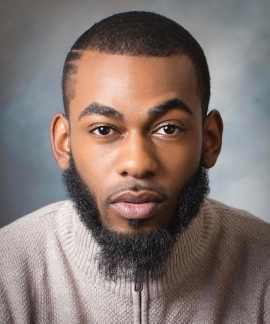
Remy A. Martin ’16P, ’18GEd
Graduate Assistant
Performing Arts, Division of Student Affairs
Category: Doctoral Student
Pronouns: he/him/his
Remy A. Martin ’16P, ’18GEd is a Graduate Assistant for the Performing Arts Department in the Division of Student Affairs at St. John’s University. He received his B.S. in Toxicology, M.S. in Adolescent Biology Education (Grades 7-12), and is currently enrolled in a Ph.D. program in the Department of Curriculum and Instruction within The School of Education.
His research interests are in education, musical arts, equity and access, and specifically, the ways in which each can potentially be utilized for the advancement of students of color in science. In addition to his extensive academic career, he also has had many successes in the performing arts world domestically and internationally. Mr. Martin has been awarded opportunities to perform in areas across the United States (including at the White House), Spain, Italy, and more. He is also one of the lead singers in a premiere dance band, Cityscape + The Park Avenue Horns, part of the Elegant Music Group based in Montclair, NJ. He is proud of his diverse background and experiences and continually applies them in all of his endeavors, both academic and extracurricular.
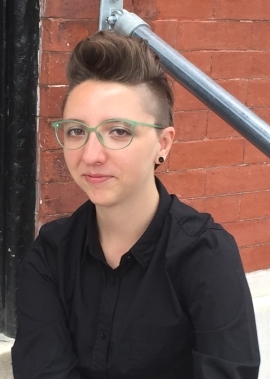
Candice D. Roberts, Ph.D.
Assistant Professor and Director of Communication Arts,
The Lesley H. and William L. Collins College of Professional Studies, St. John’s University
Category: Faculty
Pronouns: they/them/theirs
Candice is Assistant Professor and Director of the Communication Arts Program at St. John’s University. They hold a Ph.D. in Communication, Culture & Media from Drexel University. Broadly, their work examines cultural narrative and identity in popular media, and they are particularly interested in archetypes, consumer behavior, and sociality around themes of class, sexuality and space/place.
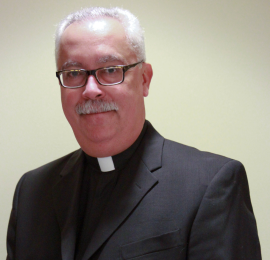
Rev. Jean-Pierre M. Ruiz, S.T.D.
Associate Professor, Department of Theology and Religious Studies, St. John’s College of Liberal Arts and Sciences
Senior Research Fellow, Vincentian Center for Church and Society
Director, Interdisciplinary Minor in Social Justice
Category: Employee
Pronouns: he/him/his
Rev. Jean-Pierre M. Ruiz, a Roman Catholic priest in the Diocese of Brooklyn, earned his doctorate in biblical studies from the Pontifical Gregorian University in Rome. He is a Past-President of the Academy of Catholic Hispanic Theologians of the United States, and he serves as a member of the Society of Biblical Literature’s Committee on Underrepresented Racial and Ethnic Minorities in the Profession. With research interests that include interreligious dialogue and immigration, Fr. Ruiz’s book, Readings from the Edges: The Bible and People on the Move, was the recipient of a Catholic Press Association Award. During the Obama administration, Fr. Ruiz served as an appointed member of the Working Group on Religion and Foreign Policy of the US Department of State.
Session 5: A Way Forward: Dismantling Systemic Oppression
Wednesday, October 21 | 6 p.m.
Session Description: The session looks to the future while providing concrete ideas, tools, and solutions of how individuals and communities can work to dismantle systemic oppression.
Please note: Prior to each conversation, attendees are asked to review recommended resources to ensure an informed and fruitful conversation.
Resource 1: (article, ~4 pages) The Aspen Institute. “11 Terms You Should Know to Better Understand Structural Racism.” July 11, 2016.
Resource 2: (video, length 13:06) Vibhuti Arya. Dark Room Methodology: Bringing Light to Structural Racism. TEDxRutgers. March 23, 2020.
- Description: A TEDx Talk that focuses on a methodology in furthering conversations on structural racism
Resource 3: (video, length: 1:00:45). Devex. “Decolonizing Humanitarian Aid” | The Future of Humanitarian Action Conversation Series. September 17, 2020.
- Description: This video presents a discussion across development experts on strategies for decolonizing humanitarian aid in the US and globally, in response to their lived experiences, visions for aid as a process of decolonization, and challenges and opportunities in the context of COVID-19.
Empowerment cannot occur without education. We hope to empower and aid you in your journey by offering additional resources to supplement your learning which will add insight into each conversation topic.
Resource 4: (resource list) New York State Coalition Against Domestic Violence. Dismantling Oppression: Resources. 2020.
Resource 5: (article, ~76 pages) Office of Planning, Evaluation and Policy Development, Office of the Under Secretary, US Department of Education. Advancing Diversity and Inclusion in Higher Education. November 2016.
Resource 6: (book) Hinton, Anthony Ray and Lara Love Hardin. The Sun Does Shine: How I Found Life and Freedom on Death Row. 2018.
Resource 7: (movie, length 2:17:00) Just Mercy. 2019.
Resource 8: (book) Derrick Bell. Faces at the Bottom of the Well: The Permanence of Racism. 1992.
Opener:
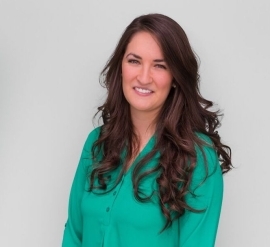
Rebecca Kerns ’15C
Senior Project Coordinator
NYU Langone Health
Category: Alumni
Rebecca Kerns ’15C is a Senior Project Coordinator for the Hassenfeld Children’s Hospital at NYU Langone Health. She is primarily responsible for the project management and data analytics of the hospital’s quality and safety portfolio, and staff wellness and engagement portfolio.
She holds a Bachelor of Science degree in Biology with a minor in Social Justice from St. John’s University’s St. John’s College of Liberal Arts and Sciences and a Master of Public Policy degree from the Johns Hopkins Bloomberg School of Public Health. As an undergraduate at St. John’s University, she was an Ozanam Scholar and focused her research on the malnutrition of impoverished pregnant women and children in New York City. While at Johns Hopkins, she completed her capstone on child sex trafficking and online classified advertising websites.
Ms. Kerns serves on the Graduates of the Last Decade (GOLD) Leadership Committee and chairs the GOLD President's Dinner Committee, and is also an active member of the Central Park Conservancy’s Greensward Circle Leadership Council. She loves to cook, travel, read, spend time exploring New York City, and learn about New York City history.
Moderator:

Nancy S. Kaplan, Ed.D.
Associate Provost
Academic Support Services
External Academic Partnerships, St. John's University
Category: Employee
Pronouns: she/her/hers
Nancy S. Kaplan, Ed.D., has spent the last 30 years of her career in higher education at St. John’s University. She is currently Associate Provost and an Adjunct Associate Professor in The Lesley H. and William L. Collins College of Professional Studies. Her academic credentials from St. John’s include a Doctor of Education, Master of Business Administration, and Bachelor of Science degree. Additionally, Dr. Kaplan completed the Management Development Program at Cornell University’s New York State School of Industrial and Labor Relations and the Management Development Studies Program at Harvard University. While a student at St. John’s, she was a four-year member of the women’s basketball team.
Additionally, she has served as a workshop facilitator for antibias and social justice organizations, including the Anti-Defamation League and the Institute for Sport and Social Justice. Dr. Kaplan has been especially effective in providing antibias education to members of law enforcement, higher education faculty and staff members, K-12 teachers and children, professional sporting organizations, and college athletes and coaches. Using her knowledge of higher education, her background in antibias education, and her experience as a member of a law enforcement family, Dr. Kaplan has developed a unique reputation for facilitating much-needed education and dialogue in a way that is impactful and thought provoking.
Dr. Kaplan also enjoys giving back to her community, as seen in her long-term service as a trustee on the school boards in two school districts, a member of the Merrick Kiwanis Club, and involvement in two local sports leagues. Dr. Kaplan resides in Long Island, NY. She is married to Lenny, the Athletics Director at the New Jersey Institute of Technology, and is the mother of two children, Michael and Joshua.
Discussants:
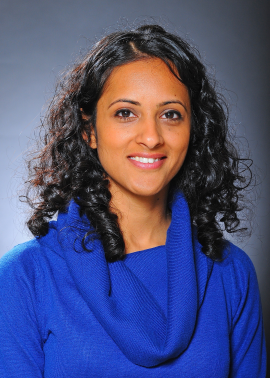
Vibhuti Arya ’06Pharm.D., M.P.H.
Lead, Gender Equity and Diversity Workforce Development, International Pharmaceutical Federation
Associate Professor, St. John’s University
Clinical Advisor, Policy, Resilience, and Response, New York City Department of Health and Mental Hygiene
Category: Faculty
Vibhuti Arya, Pharm.D., M.P.H., has worked for the past 15 years to bridge the gap between health care, well-being, and equity. She serves as an Associate Clinical Professor at St. John’s University’s College of Pharmacy and Health Sciences and as a Clinical Advisor to the New York City Department of Health and Mental Hygiene.
Dr. Arya is also a Global Lead for Gender Equity and Diversity Workforce Development for the International Pharmaceutical Federation. In her day job, she works to integrate pharmacists into public health initiatives, particularly among high-risk, medically underserved areas in New York City, and advises on legislation pertinent to pharmacy practice and access to care. To date, Dr. Arya has been engaged with several efforts, including public heath detailing, expanding naloxone access through community pharmacies, syndromic surveillance, and emergency preparedness.
Dr. Arya engages her students to examine public health programs and policies through the lens of equity, applying social justice principles and frameworks to help reduce inequities in care. She completed the Pharmaceutical Care Leadership Residency at the University of Minnesota, and her M.P.H. from the Johns Hopkins Bloomberg School of Public Health. She brings together her backgrounds in social justice, theatre, and mindfulness to create brave spaces to serve people and systems intentionally working toward dismantling structural racism. She recently gave a TEDx talk on structural racism.
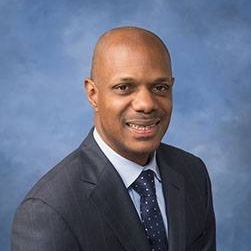
David L. Bell, Ed.D.
Dean and Associate Professor
The School of Education, St. John's University
Category: Employee
David L. Bell, Ed.D., is the Dean of The School of Education. He comes to St. John’s from West Chester University, where he spent three years as the Associate Dean of Curriculum and Accreditation. During his tenure, he was instrumental in developing a valid and reliable assessment system and co-authored a grant to recruit veterans into the teaching profession.
Previously, Dr. Bell spent 15 years serving as Associate Professor and Associate Dean at Saint Xavier University in Chicago, IL, where he served as the accreditation coordinator and facilitated the implementation of the School of Education’s assessment system, in addition to other responsibilities.
Dr. Bell is a graduate of University of Illinois Urbana–Champaign, earning a B.S. in Finance, and Loyola University Chicago, where he earned an M.Ed. and Ed.D. in Curriculum and Instruction. He also consulted as the area-wide Instructional leader for the Illinois Multi-Tiered System of Support Network (Illinois MTSS-N) to assist school districts in developing a framework to ensure high-quality, effective instructional practices for all students.
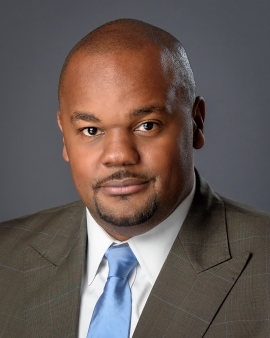
Rahsaan J. Coefield ’05CPS
Director, Equal Employment Opportunity (EEO) Investigations
Lockheed Martin Corporation
Category: Alumni
Pronouns: he/him/his
Rahsaan J. Coefield, Esq. ’05CPS is Director, Equal Employment Opportunity (EEO) Investigations, for Lockheed Martin Corporation. In this role, Mr. Coefield ensures Lockheed Martin’s commitment to diversity in the workplace by leading the team that conducts thorough and fair EEO investigations across a global technology company and the largest US aerospace and defense contractor.
He is an alumnus of St. John’s University and Thurgood Marshall School of Law at Texas Southern University in Houston, TX. A member of the New Jersey Bar, Mr. Coefield also serves on the national board of directors of INROADS and is an ambassador for the National Museum of African American History and Culture. He is a life member of Alpha Phi Alpha, Fraternity, Inc., and is a member of the Association of Workplace Investigators, Inc.; the Society for Human Resource Management; and the NAACP.
Mr. Coefield is a native of Lakewood, NJ, and resides with his wife, Kameron, in Prince George’s County, MD.
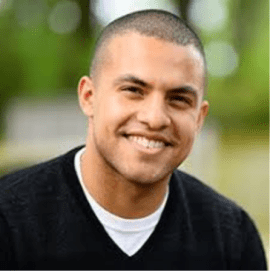
Pablo J. Sanchez ’13C, ’14G, ’18GCPS
Data Scientist, The Hunger Project
Adjunct Professor, Department of Sociology and Anthropology, St. John’s University
Category: Faculty and Alumni
Pronouns: he/him/his
Pablo J. Sanchez currently works as a Data Scientist for The Hunger Project as part of their Global Programs and Measurement, Evaluation, and Learning teams. His role supports the management and analysis of data, tracking efforts toward hunger reduction, women’s empowerment, and community-led development across 11 countries (i.e., Bangladesh, Benin, Burkina Faso, Ethiopia, Ghana, India, Malawi, Mexico, Mozambique, Senegal, Uganda, and Zambia) and more than 13,000 rural communities. In addition, Mr. Sanchez is a leader in the implementation of organizational learning strategies, and works with colleagues located in country locations on data collection methods and implementation.
He also teaches a course on fieldwork in global sustainable development through St. John’s College of Liberal Arts and Sciences, implemented in Morona Santiago, Ecuador, in partnership with the Shuar and mestizo communities of Yunkuankas. He recently coauthored research on decolonizing practices in experiential learning, found in the Journal of Experiential Education.
Prior to his current positions, Mr. Sanchez worked for the Vincentian Institute for Social Action, as well as completed a Fulbright teaching grant in Minas Gerais, Brazil, at the Universidade Federal dos Vales do Jequitinhonha e Mucuri in Diamantina. He is an alumni of the Ozanam Scholars Program.
His family immigrated to the United States from El Salvador, and he is a first-generation college graduate. He holds a B.A. and M.A. in Sociology and an M.S. in Data Science from St. John’s University.
Session 6: Where St. John's University Goes from Here
Wednesday, November 18 | 1:50 p.m.
Session Description: As Session 6 wraps up this semester’s conversations, senior leadership from departments across the St. John’s University campus discuss how the University community is following through with its commitment to be an antiracist institution.
Please note: Prior to each conversation, attendees are asked to review recommended resources to ensure an informed and fruitful conversation.
Please review the "Becoming an Antiracist Institution" Microsite.
How to access the site:
1. On the main page (www.stjohns.edu), go to the top right. You will see the word MENU. Click on "Menu," then go to "About." Click on the + symbol. Click on "Equity and Inclusion." Once you go to this page, click on the top right header titled, "Becoming an Antiracist Institution."
OR
2. On the home page (www.stjohns.edu), scroll down the main page about a third of the way until you see the words, “Who We Are”. You will see a slider of images. Click on the image that says, “Diversity, Equity, and Inclusion.” Once you go to this page, click on the link to the right titled, "Becoming an Antiracist Institution."
Vincentian Family Office. "Statement of the Vincentian Family in the Face of Racial Discrimination." Famvin.
Opener:
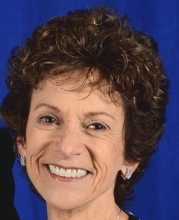
Anita Gomez-Palacio ’65Ed, ’89PD
Board of Trustees
St. John’s University
Retired Executive Director of Operations
Council of School Supervisors & Administrators (CSA)
Local 1, American Federation of School Administrators (AFSA), AFL-CIO
Category: Board of Trustees
Pronouns: she/her/hers
Anita Gomez-Palacio was born in Brooklyn, NY, to immigrant parents. Her family moved from Brooklyn to Queens, NY, where Ms. Gomez-Palacio and her three brothers attended New York City public schools.
Ms. Gomez-Palacio graduated from Jamaica High School and attended St. John’s University on scholarship, graduating cum laude with majors in both French and Spanish. She began her teaching career as a French teacher at East Meadow High School in East Meadow, NY; she also taught French and Spanish in the same district at Woodland Junior High School (now Woodland Middle School) for six years.
Following that, she moved to Europe, remaining there for nearly 10 years. Upon returning to the US, she began teaching English as a Second Language in New York City’s District 25 in Flushing, Queens. After being awarded three consecutive Title VII scholarships, she was able to attend Teachers College at Columbia University, and earn both an M.A. in Bilingual Education and TESOL, and an Ed.M. in Instructional Technology. Following those degrees, she earned a Professional Diploma in Administration and Supervision from St. John’s University.
After teaching for three years in District 25, Ms. Gomez-Palacio became Coordinator of Technology, Bilingual Education, and Writing Process for the district. Eight years later, she became an Interim Acting Assistant Principal at JHS 194, District 25. She was appointed to the position two years later, and 18 months after that, was named Principal of Marie Curie Middle School in District 26, Bayside, Queens. Now retired, she eventually left her principal position to serve as Executive Director of Operations at the Council of School Supervisors & Administrators.
Ms. Gomez-Palacio is currently a member of the Board of Trustees of St. John’s University; Co-chair of the Arts Advisory Committee of the NYC Department of Education; former Executive Board member of the Labor Council for Latin American Advancement (LCLLA); Board Member and Past President of the New York Academy of Public Education (NYAPE); Board Member and Past President of the St. John’s University chapter of Phi Delta Kappa (PDK); former member of the Executive Board of the New York City Middle School Principals’ Association; former New York City Membership Liaison for the National Association of Secondary School Principals (NASSP); and Past President of the Association of Computer Educators (ACE). She was also the Cofounder and Past President of the St. John’s University Epsilon Chapter of Sigma Delta Pi (the Spanish National Honor Society) and the Founder and Past President of the St. John’s University Delta Pi Chapter of Pi Delta Phi (the National French Honor Society).
Moderator:
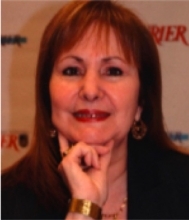
Alina Camacho-Gingerich, Ph.D
Chair and Professor, Department of Languages and Literatures
Director, Center for Latin American and Caribbean Studies (CLACS)
St. John’s University
Category: Employee
Pronouns: she/her/hers
Alina Camacho-Gingerich, Ph.D., is Professor and Chair of the Department of Languages and Literatures and Director of the Center for Latin American and Caribbean Studies (CLACS) at St. John’s University. The multidisciplinary center she leads, CLACS, is composed of students, faculty, administrators, and scholars from all disciplines and schools of the University, whose interdisciplinary research, teaching, and professional involvement demonstrate a serious commitment to the study of Latin America, the Caribbean, and Latinos in the United States.
Dr. Camacho-Gingerich has organized and chaired many multidisciplinary symposia, conferences, workshops, and lectures, and has helped promote joint academic programs and research projects with universities abroad and diplomatic missions in New York City. In addition, CLACS works closely with various New York City communities and has led a series of projects in support of the low-income families and individuals who live in those communities, regardless of ethnic background.
Under Dr. Camacho-Gingerich’s leadership, CLACS has received several foundation and city grants, including several from the New York City Department of Youth and Community Development in Adult Literacy, to teach economically disadvantaged adults of all ethnic backgrounds English at various levels and other basic education classes. The center’s publication, The Immigrant Experience in New York City: A Resource Guide, is one of the publications from those funded projects.
Dr. Camacho-Gingerich, a leading scholar on Latin American literature and civilization, is the author of numerous multidisciplinary studies, including the books La cosmovisión poética de José Lezama Lima en Paradiso y Oppiano Licario; Coping in America: The Case of Caribbean East Indians; Mexico in the Twentieth-First Century: Selected Essays; and coeditor, with Rafael Art. Javier, Amanda Baden, and Frank Biafora, of Handbook of Adoption: Implications for Researchers, Practioners, and Families.
She is also the author of more than 65 scholarly articles, chapters, and reviews, published in prestigious academic journals, books, and anthologies. In addition, she has presented numerous papers in international and national symposia of scholarly and learned societies, and has been on the editorial board of various journals. Dr. Camacho-Gingerich is frequently interviewed by the media for her expertise on Latin American, Caribbean, and Latino issues.
She has been the recipient of many national and international awards and professional recognitions, among them: recognized as one of the “2006 Distinguished Women” by El Diario/La Prensa; recipient of the 2002 First Outstanding Latino Faculty Award; 2000 Faculty Outstanding Achievement Award, and the 2000 Woman of Distinction Award, by St. John’s University; one of “20 Prominent Women Making Their Mark” (together with, among others, Claire Shulman, Mariah Carey, Donna Karan, and Rosie O’Donnell) by Newsday, in a special edition during 2000 Women’s History Month; honored by Newsday and the Jamaica Center for Arts and Learning in an exhibition of 41 photographic portraits of “remarkable women leaders,” The Many Faces of Queens Women, June 30–August 28, 1999; recognized as one of the “Fifty Outstanding Latinas of 1998” at a luncheon held at the Harvard Club New York City, sponsored by El Diario/La Prensa, AT&T, and Goya Foods (March 18, 1998); recipient of the Flora Tristán Award, given by the Latin American Women’s Council and the Latin American Cultural Center of Queens, in recognition of her “extraordinary leadership on behalf of the Hispanic community and exceptional role model for all women” (1997); recognized by ALPRONIH, a Central American cultural organization, as “Outstanding Latin American Woman Leader,” for her support and dedication to the Latin American community (1995); awarded the Simón Bolívar Medal (La Paz, Bolivia, 1993), one of the highest honors a Latin American nation bestows; elected twice as a member of the Literature Advisory Panel of the Texas Commission on the Arts (1984, 1985); recipient of the Doctoral Andrew Mellon Fellowship; recipient of several St. John’s University’s Faculty Merit Awards for outstanding research and publications; and listed in Who's Who Among Hispanics in the United States.
Dr. Camacho-Gingerich is on the board of directors and trustees of several academic and cultural community organizations and is active in numerous professional organizations, including the Latin American Studies Association, International Institute of Ibero-American Literature, Modern Language Association, American Association of Teachers of Spanish and Portuguese, International Association of Hispanists, the International Association for the Fantastic in the Arts, the American Council on the Teaching of Foreign Languages, and the Hispanic Literary and Cultural Institute.
Discussants:
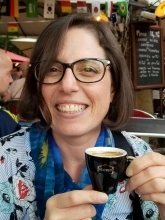
Gina M. Florio, Ph.D.
Interim Dean and Associate Professor
St. John’s College of Liberal Arts and Sciences
St. John’s University
Category: Employee
Pronouns: she/her/hers
Gina M. Florio, Ph.D., is the Interim Dean of St. John’s College of Liberal Arts and Sciences at St. John’s University and an Associate Professor with a joint appointment in the departments of Chemistry and Physics. As Interim Dean, she draws upon her six years of experience as a leader of University-wide, strategic, action planning and institutional effectiveness efforts, in addition to her 15 years as a student-centered teacher and research-active faculty member at St. John’s.
Dr. Florio joined the faculty of St. John’s College in 2005 as a Clare Boothe Luce Assistant Professor of Chemistry and has since proven herself to be an effective teacher, scholar, and mentor, as well as a dedicated member of the University community. Among the most important of her roles, Dr. Florio has served as a Faculty in Residence (2009–12) and as the research mentor to more than 60 undergraduate, graduate, and high school students during her time at St. John’s.
Dr. Florio’s discovery research in the field of molecular electronics is focused on understanding charge transport processes and structure-function relationships in single molecule junctions. Additional areas of her scholarly work include the design, implementation, and efficacy of course-based undergraduate research experiences (CUREs), broadening participation in STEM, improving student STEM identity, and creating significant learning experiences. Presently, Dr. Florio is the principal investigator on a National Science Foundation (NSF) ADVANCE Catalyst award and coprincipal investigator on a NSF Scholarships in Science, Technology, Engineering, and Mathematics (S-STEM) award with fellow members of the St. John’s University faculty and administration.
Dr. Florio completed her A.B. cum laude in Chemistry at Vassar College in 1997, her Ph.D. in Physical Chemistry at Purdue University in 2001, and her postdoctoral research fellowship at the NSF Center for Functional Nanomaterials at Columbia University in 2005. She has also participated in prestigious leadership development programs, including the HERS Summer Institute, the American Association of Colleges & Universities PKAL STEM Leadership Institute, and the Vincentian Mission Institute at St. John’s University.
Dr. Florio lives with her husband and daughter on Long Island, NY, where they spend much of their leisure time playing with their two cats, reading, cooking, and riding bicycles throughout their neighborhood and in the many state and local wildlife preserves and parks.

Nada M. Llewellyn, Esq.
Chief Diversity Officer
Associate Vice President for the Office of Human Resources
Deputy General Counsel
St. John’s University
Category: Employee
Pronouns: she/her/hers
Nada M. Llewellyn, Esq., serves as Chief Diversity Officer, Associate Vice President for the Office of Human Resources, and Deputy General Counsel. Ms. Llewellyn joined the University’s Office of General Counsel as Associate General Counsel in June of 2005, and was promoted to Deputy General Counsel in June of 2014. She assumed the roles of Chief Diversity Officer and Associate Vice President for Human Resources in August of 2016, and leadership of the Office of Equity and Inclusion in July of 2018.
Ms. Llewellyn, in collaboration with the President and Provost, is charged with the strategic leadership of institutional diversity and inclusion efforts. As Chief Diversity Officer, she advises senior leadership and leads strategic equity planning efforts that advance the University’s mission and vision and collaborates with key University stakeholders to develop and deploy initiatives that contribute to the achievement of equity-related goals.
Together with Manouchkathe Casssagnol, Pharm.D., BCPS, AACC, she chairs the University’s Equity and Inclusion Council. As Associate Vice President for Human Resources, her responsibilities include oversight for all employee benefits, compensation, payroll, student employment, training, and EEO/Title IX programs.
In her role as Deputy General Counsel, Ms. Llewellyn provides advice and counsel regarding University legal and compliance issues; serves as the lead attorney for all of the University’s material corporate transactions; and provides pertinent information and guidance on applicable law, compliance regimes, and University policies and procedures.
Ms. Llewellyn is a graduate of Dartmouth College and the University of Michigan Law School. She served as a member of the University of Michigan Law Review. Prior to coming to St. John’s, Ms. Llewellyn was a corporate associate at the New York office of Skadden, Arps, Slate, Meagher & Flom LLP, specializing in financing transactions and private investment funds.
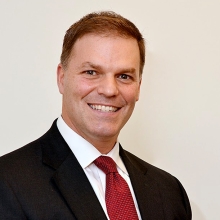
Joseph E. Oliva, Esq. ’91CBA, ’94L
Vice President for Administration, Secretary, and General Counsel
St. John’s University
Category: Employee
Pronouns: he/him/his
Joseph E. Oliva, Esq. ’91CBA, ’94L serves as Vice President for Administration, Secretary and General Counsel. He joined the University in October of 2000.
Mr. Oliva is the Chief Administrative Officer of the University, overseeing Athletics, Public Safety, Human Resources, the Office of General Counsel, Enterprise Risk Management, and Internal Audit. As the University’s General Counsel, he is the chief legal officer, providing counsel to the Board of Trustees, the President, and other University administrative offices.
Prior to his position at St. John’s, Mr. Oliva worked as a litigation associate at the firms Willkie, Farr & Gallagher LLP and Garfunkel Wild, P.C.
Mr. Oliva graduated summa cum laude from St. John’s University (B.S., Finance) and magna cum laude from St. John’s School of Law. He served on the St. John’s Law Review. Mr. Oliva is ordained as a permanent deacon in the Roman Catholic Diocese of Rockville Centre. He resides on Long Island, NY, with his wife and their three children.
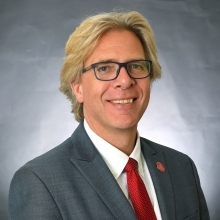
Simon G. Møller, Ph.D.
Provost and Vice President for Academic Affairs
Professor, Biological Sciences
St. John’s University
Category: Employee
Pronouns: he/him/his
Simon Geir Møller, Ph.D., currently serves as Provost and Vice President for Academic Affairs. Following a four-year, North Atlantic Treaty Organization (NATO)-funded postdoctoral position at Rockefeller University, Dr. Møller was appointed as an Assistant Professor in 2001 and as Associate Professor in 2004 at The University of Leicester, UK. In 2006, he was appointed as Professor and Chair of the Department of Mathematics and Natural Sciences at the University of Stavanger, Norway, and held a joint professorship at the Norwegian Centre for Movement Disorders. In 2009, Dr. Møller founded and became Director of the Centre for Organelle Research, a research center dedicated to organelle biology. He also founded the biotechnology company Plastid Corp in 2007.
Dr. Møller was appointed as a tenured professor at St. John’s University in the Department of Biological Sciences in 2011, and in 2014, as the Vice Provost for Graduate Education and Research. In 2015, he became Senior Vice Provost. In 2018, he was appointed Interim Provost and Vice President for Academic Affairs. In 2019, Dr. Møller was appointed as Provost.
Dr. Møller maintains an active research laboratory and has published more than 80 research articles and book chapters in prestigious journals such as Nature, Proceedings of the National Academy of Sciences, Genes and Development, and the EMBO Journal. He has received international recognition for his contribution to the sciences, including the European Molecular Biology Organization (EMBO) Young Investigator Award, the Federation of European Societies of Plant Biology (FESPB) Young Scientist Award, the Society of Experimental Biology (SEB) President’s Medal in Cell Biology, and the Promega International Scientific Prize. Dr. Møller is also an elected member of the Norwegian Academy of Science and Technology and has had numerous advisory board and board member positions within the biotechnology industry sector.
Dr. Møller received a B.S. with Honors, Class I, from the University of Leeds, Department of Biochemistry, UK; an M.S. with Distinction from the Imperial College, Department of Biochemistry, UK; a management and employment law degree from the University of Stavanger, Norway; and a Ph.D. from the University of Leeds, Department of Biochemistry, UK.
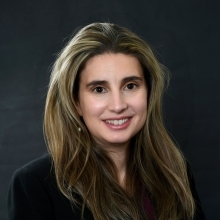
Anne Rocco Pacione
Chief Information Officer
St. John’s University
Category: Employee and Alumni
Pronouns: she/her/hers
Anne Rocco Pacione joined St. John’s University in September of 2011 as Director of Network and Communication Services. At that time, the University was creating a multiyear Technology Strategy Plan. As part of this strategy, Ms. Pacione led a team through several major projects to upgrade and standardize the data network, replace and expand wireless networks, and modernize voice networks, which has positioned the University for future technological growth.
Ms. Pacione also had a key role in developing the data security program, as well as providing technology architecture guidance on academic initiatives, including classroom upgrades. Since then, her role has expanded to include oversight of all University Information Technology (IT) infrastructure. She also serves as Chief Information Officer, providing strategic vision and leadership for the IT organization.
Prior to joining St. John’s, Ms. Pacione worked in financial services, most recently as Senior Vice President of Operations and Technology for a business intelligence and data analytics consulting company. Throughout her career, Ms. Pacione has gained experience working with all aspects of technology, with a significant focus on IT architecture and security.
Ms. Pacione is a graduate of Villanova University, where she received her Bachelor of Science degree in Computer Science.
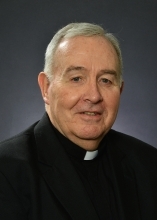
Rev. Bernard M. Tracey, C.M. ’70C
Executive Vice President for Mission
St. John’s University
Category: Employee and Alumni
Pronouns: he/him/his
Rev. Bernard M. Tracey, C.M. ’70C, Executive Vice President for Mission, has contributed to campus life for more than 30 years. Fr. Tracey, an alumnus, returned to alma mater in 1984 as a Campus Minister and continued directing the Vincentian Service Corps, a program established in 1983 by the Vincentian community. He went on to hold top administrative posts at St. John’s University as Assistant Vice President and Director of the 125th Anniversary (1993–95); Associate Vice President and Acting Director of Public Relations (1995–96); Executive Assistant to the President (1996–97); Vice President of Institutional Advancement (1997–03); and Vice President for University Relations (2003–06). He was appointed to the University’s Board of Trustees (2013–14), while serving as Superior of St. Vincent’s Seminary in Philadelphia, PA, from 2006 to 2014.
Fr. Tracey held many pastoral positions beyond the University that underscore his commitment to Catholic and Vincentian education. A Director of Campus Ministry at Niagara University in the late 1970s and early 1980s, Fr. Tracey also served as an Associate Pastor and Campus Minister at St. Mary’s Parish, in Greensboro, NC (1974–75); Associate Pastor of St. Vincent De Paul Parish in Philadelphia (1975–79); and Pastor at Philadelphia’s Immaculate Conception Church (1981–84).
Fr. Tracey’s call to service impacted a wide variety of organizations and agencies, which benefited from his leadership. He was a member of the Board of St. John’s Italian Cultural Center and the local Jamaica Community Business Advisory Board. In addition to his work as a University trustee, other educational institutions and service organizations he served in this capacity include St. John’s Preparatory School, The DePaul Catholic School, the Vincentian Service Scholars, DePaul International, DePaul USA, Covenant House Pennsylvania, the Catholic Volunteer Network, and boards of other faith-based national service programs.
Fr. Tracey received his bachelor’s degree from St. John’s University in 1970, with a major in sociology and a minor in philosophy. He earned his master’s in divinity from Mary Immaculate Seminary in 1974.
This series is a collaborative effort across multiple departments, including the Office of Alumni Relations, Office of Equity and Inclusion, Office of University Events, Office of University Mission, and Division of Student Affairs.
